

Have a Trip to Paris Planned? What to Know About Ongoing Protests
After a series of pension protests throughout the first half of the year, french citizens again took to the streets after a police officer killed a 17-year-old boy. here’s the latest information..
- Copy Link copied

In France, riot police have been repeatedly called in as tensions escalate.
Photo by Shutterstock
A fresh wave of protests took place throughout France in late June and early July after a police officer killed a 17-year-old delivery driver during a traffic stop. The teenager, named Nahel, was of North African descent and died on Tuesday, June 27, sparking outrage throughout the country.
In the days following the killing, riots broke out in dozens of cities throughout France, with incidents of arson, clashes, and looting, the Associated Press reported . After six nights of unrest and more than 3,400 arrests, the violence appeared to be abating as of this week, AP reported.
In its latest update , security risk and crisis management firm Crisis24 notes that “protests and widespread incidents of violence in reaction to the June 27 police-involved killing of a teenager near Paris have reduced significantly, as of July 5. Authorities reported that Paris and other urban centers were relatively calm overnight July 3–4 and 4–5. Police announced significant reductions of violent incidents, arrests, and injuries, after a peak on June 30.”
According to Crisis24, several political organizations have called for additional marches on July 8 . “These demonstrations are likely to attract thousands of attendees. The locations and timings of events are not yet known,” the firm stated. “Tensions will likely remain high nationwide as authorities prepare for possible rioting in the coming days.”
The most recent unrest comes in the wake of numerous rounds of protests that have been taking place in Paris and around France since the start of the year. Previously, demonstrators had been voicing their opposition to French President Emmanuel Macron’s new pension plan, which pushes the retirement age from 62 to 64 and was enacted into law on April 14. Those protests had become more muted recently, having dwindled from gatherings with tens of thousands of participants earlier this spring to much smaller groups of several hundred citizens.
Heaping piles of garbage were removed from the Paris streets at the end of March and in early April when a garbage collectors’ strike that had been in effect since March 6 was finally called off; the strike was in response to their newly proposed retirement age, up to 59 from 57.
A new round of escalations could again disrupt services such as public transportation.
Is it safe to travel to Paris?
The U.S. Embassy in Paris has issued a “security alert,” warning that there are ongoing demonstrations in and around the Paris region and other major French cities “following the June 27 police shooting in the Parisian suburb of Nanterre.”
“These demonstrations, along with spontaneous protests, are expected to continue and may turn violent. U.S. citizens should avoid mass gatherings and areas of significant police activity as they can turn violent and result in clashes,” the U.S. Embassy states.
The embassy also reports that some cities in France are imposing curfews and advises that U.S. citizens avoid demonstrations and areas with increased police activity and monitor the news for updates. (English-language French media outlets include France 24 , RFI, and the Local. ) The locations of protests are not often known in advance, so it’s important to stay up to date on the latest.
As of July 6, 2023, the U.S. State Department’s France Travel Advisory remains unchanged at a Level 2 (indicating that travelers should continue to exercise increased caution). The U.S. Embassy cites the reasons as terrorism and civil unrest.
What should you do if you’re traveling to France? The U.S. State Department recommends that U.S. citizens in France “avoid areas around protests and demonstrations” as “past demonstrations have turned violent . . . in case of violence or property damage, French authorities may use chemical agents and water cannons to disperse crowds.” It also notes that “strikes can interfere with travel plans.”
For additional assistance, contact the U.S. Embassy in Paris at +33 (1) 43 12 22 22 or [email protected].
Are flights to France, transportation services, and other businesses affected by the protests?
Following the latest unrest, the public transit system “remains disrupted, with bus, tram, and rail services in several major cities suspending or limiting operations,” Crisis24 reports. In the Paris region, the transport operator RATP has at time suspended some bus, tram, metro, and RER train lines, so be sure to check the latest before making any travel plans using public transit.
During the pension protests, among those that had been walking out on the job were air traffic controllers, which most recently planned strike actions on May 1 and 2. As a result, the French Civil Aviation Authority asked all airlines to reduce their flight schedules to and from Paris Orly airport and several other French airports on May 1 and May 2.
During the strike, Air France operated all of its long-haul flights, all flights to and from Paris Charles de Gaulle Airport, and about 70 percent of flights between Paris-Orly and other French airports. Passengers who experienced a flight cancellation due to strike activity could opt for either a future flight credit or a full refund, according to Air France.
During strike actions, “last-minute delays and cancellations cannot be ruled out,” Air France said.
Another round of air traffic controller strikes has not yet been announced or scheduled but shouldn’t be ruled out by travelers.
In addition to worker strikes that can affect services such as public transport systems, the ongoing protests in France can create traffic and transportation congestion and service interruptions in and around major cities, including potential delays in travel between downtown and the main Paris airports, Charles de Gaulle and Orly.
Crisis24 advises travelers to confirm all transportation reservations. “Do not check out of accommodations until onward travel is confirmed,” the firm notes, adding that travelers should allow extra time for travel in major French cities.
As of press time, major museums and attractions in Paris, including the Louvre , Musée d’Orsay , Eiffel Tower , and Sacré Coeur , remain open to visitors during regular operating hours—although the Louvre and Eiffel Tower have both temporarily closed during protests, so be sure to check daily with regards to opening hours and operations.

Graffiti in Paris in the aftermath of a police killing of a teenager named Nahel.
Lyndsey Matthews
What does it feel like on the ground in Paris right now?
The riots have “definitely died down,” says Lyndsey Matthews, AFAR’s senior commerce editor, who was in Paris at the height of the latest round of uprisings in early July following the police killing. “When I was there, I saw nothing. I noticed a few shops on the Champs-Elysées were boarded up and they apparently cleared the Place de Concorde after I was there Friday evening, but it wasn’t noticeable as a tourist.” On the average day in Paris, “it feels fine on the ground, honestly,” says Lindsey Tramuta, a freelance writer and frequent AFAR contributor based in Paris. “I would recommend travelers keep following the news about it and if and when there are additional strikes or demonstrations planned, which are announced in advance, that they avoid those areas.”
What are the 2023 Paris protests about?
The latest unrest in Paris and throughout France followed the police shooting of Nahel, a 17-year-old boy of Algerian heritage, in the Paris suburb of Nanterre, an incident that was captured on video, CNN reported . The killing surfaced concerns and outrage about ongoing issues of racism and poverty in France, and the subsequent uprisings prompted President Macron to ban large-scale events in France as tensions remain high.
The riots come in the wake of months of pension protests in Paris and throughout France that represent the most significant demonstrations since the Yellow Vests Movement (named after the fluorescent vests protesters wore during the demonstrations), which began in late 2018 and continued into early 2019. Back then, French people were opposed to President Macron’s fuel tax hike (instituted to reduce emissions) and to the government’s economic policies and the high cost of living.
In 2023, French citizens are once again fed up—this time that Macron’s government implemented Article 49.3 of the Constitution to pass a bill without a vote in the Assemblée Nationale that pushes back the retirement age from 62 to 64 for most workers and requires that citizens have worked for at least 43 years in order to access a full pension. The global average retirement age in 2020 was 64.2 for men and 63.4 for women, according to the most recent data available from the Organization for Economic Cooperation and Development (OECD) .
President Macron explained the reasoning behind the new policy, stating, “People know that yes, on average, you have to work a little longer . . . because otherwise we won’t be able to finance our pensions properly,” the Associated Press reported .
But as Lisa Bryant of NPR’s Morning Edition notes , “The French are fiercely protective of their universal health care and generous pensions. It’s a choice society has made: Work hard, pay high taxes, but also retire at a relatively young age with a high standard of living.”
And now French citizens are rising up again in opposition to police brutality and discrimination against marginalized communities.
This story was originally published on March 21, 2023, and has been updated to include current information.

- Share full article
Advertisement
Supported by
Traveling to France? What You Need to Know About the Protests.
Unrest has spread across France in response to the fatal police shooting of a 17-year-old in a Paris suburb. Here’s what to expect.

By Ceylan Yeginsu
Violent protests have spread across France over the past week since the fatal police shooting of a 17-year-old in a Paris suburb.
More than 800 people were arrested on Thursday night after protesters caused widespread destruction in dozens of cities, setting cars and buildings on fire, looting stores and clashing with the riot police. On Friday, many roads in the Paris region and other major cities like Marseille were cordoned off, and public transport routes were disrupted as more than 40,000 police officers were deployed across the country to bring the protests under control.
With the peak summer travel season underway, many tourists are headed to Paris and other parts of France for their summer vacations. Here’s what you need to know about how your trip might be affected.
Which cities have been hit hardest?
The clashes began in the Paris suburb of Nanterre on Tuesday night, after the police shot and killed the male teenage driver — a French citizen of North African descent, publicly identified as Nahel M. — who was stopped at a traffic light. The violence quickly spread to nearby areas in the greater Paris region as news of the killing reignited decades-long grievances over racial discrimination in working-class areas. The police officer who shot the driver was detained on Thursday on charges of voluntary homicide.
After three nights of riots, Clamart, in the southwestern suburbs of Paris, imposed a curfew between 9 p.m. and 6 a.m. through Monday. Other communities affected by the violence include Bezons, Gennevilliers, Garges-lès-Gonesse, Meudon and L’Île-St.-Denis, close to the headquarters of the 2024 Olympics.
The center of Paris, home to tourist attractions like the Louvre and the Eiffel Tower, had largely been unaffected until Thursday night, when looters descended onto the Rue de Rivoli, one of the city’s main shopping streets, and ransacked a Nike store.
Police asked people in popular tourist areas in Marseille and Bordeaux to leave the area on Thursday night after fires were set alongside streets, and violent clashes erupted between the police and protesters. On Friday, Marseille banned all demonstrations.
How has transport been affected?
On Friday, the Interior Ministry ordered the suspension of all bus and tram services after sunset, in response to the unrest.
The greater Paris region had already reduced services in recent days to limit the mobility of the protesters at night, and the city’s metro system will close an hour early over the weekend. Île-de-France Mobilités, the regional transport agency, has been issuing service updates on its website.
Is it safe to visit France?
The State Department has not advised against travel to France, but it issued a security alert on Thursday highlighting the violence and urging United States citizens to avoid “mass gatherings and areas of significant police activity.”
“Some cities are imposing curfews,” the alert said. “As always, it is a good practice to notify friends or family of your whereabouts.”
A State Department advisory issued in 2022 remains in place, urging travelers to “exercise increased caution in France due to terrorism and civil unrest.”
Follow New York Times Travel on Instagram and sign up for our weekly Travel Dispatch newsletter to get expert tips on traveling smarter and inspiration for your next vacation. Dreaming up a future getaway or just armchair traveling? Check out our 52 Places to Go in 2023 .
Ceylan Yeginsu is a travel reporter. She was previously a correspondent for the International desk in Britain and Turkey, covering politics; social justice; the migrant crisis; the Kurdish conflict, and the rise of Islamic State extremism in Syria and the region. More about Ceylan Yeginsu
Open Up Your World
Considering a trip, or just some armchair traveling here are some ideas..
52 Places: Why do we travel? For food, culture, adventure, natural beauty? Our 2024 list has all those elements, and more .
Mumbai: Spend 36 hours in this fast-changing Indian city by exploring ancient caves, catching a concert in a former textile mill and feasting on mangoes.
Kyoto: The Japanese city’s dry gardens offer spots for quiet contemplation in an increasingly overtouristed destination.
Iceland: The country markets itself as a destination to see the northern lights. But they can be elusive, as one writer recently found .
Texas: Canoeing the Rio Grande near Big Bend National Park can be magical. But as the river dries, it’s getting harder to find where a boat will actually float .
Protests in Paris: how unrest could impact Easter travel plans

Mar 31, 2023 • 5 min read
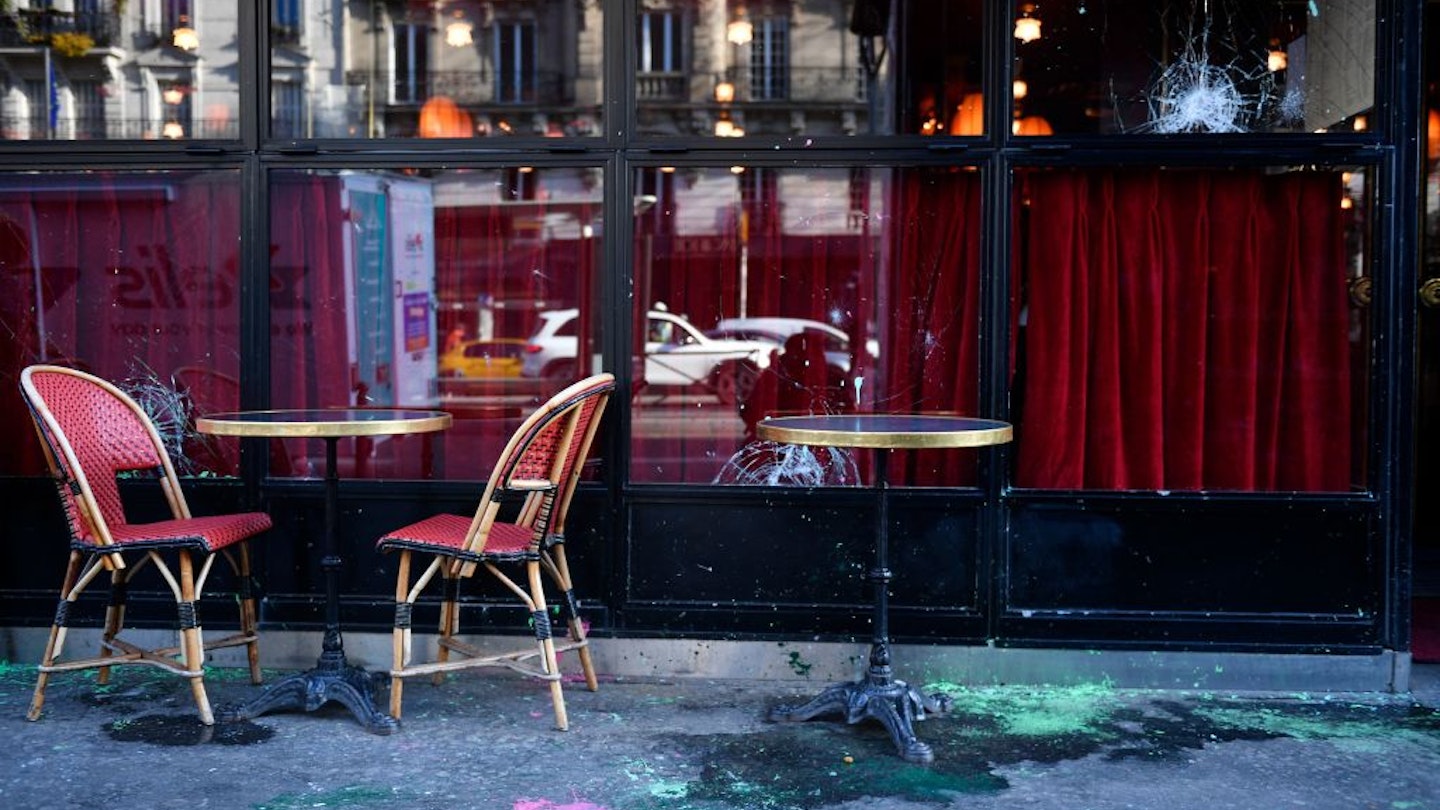
Paris has been gripped by strikes and demonstrations related to the recent, controversial pension reform. Left Bank bistro La Rotonde was damaged on the 11th day of action © Julian de Rosa/AFP via Getty Images
Over the last few weeks, images of overflowing garbage bins and violent street protests in Paris have dominated the international news cycle – raising qualms among travelers.
If you have plans to visit the French capital this spring, here’s the low-down on how to experience the city fully – but safely.
What’s happening in France and why are people striking?
Over the last three months, the government’s unpopular pension-reform scheme, which will gradually raise the age of retirement from 62 to 64, has unleashed a wave of discontent in France .
The level of anger and violence escalated after the government used a controversial executive power to push through the bill without putting it to a vote in parliament, where it faced fierce opposition.
Millions of people have marched in union-organized protests since they began in January. The 11th day of protests took place this week on Thursday April 6 with trains and planes disrupted as well as hundreds of thousands taking to the streets to demonstrate. Left Bank brasserie La Rotonde, a haunt of President Macron, saw it's awning set on fire. Trade unions have vowed to continue staging rolling strikes until the bill is withdrawn.
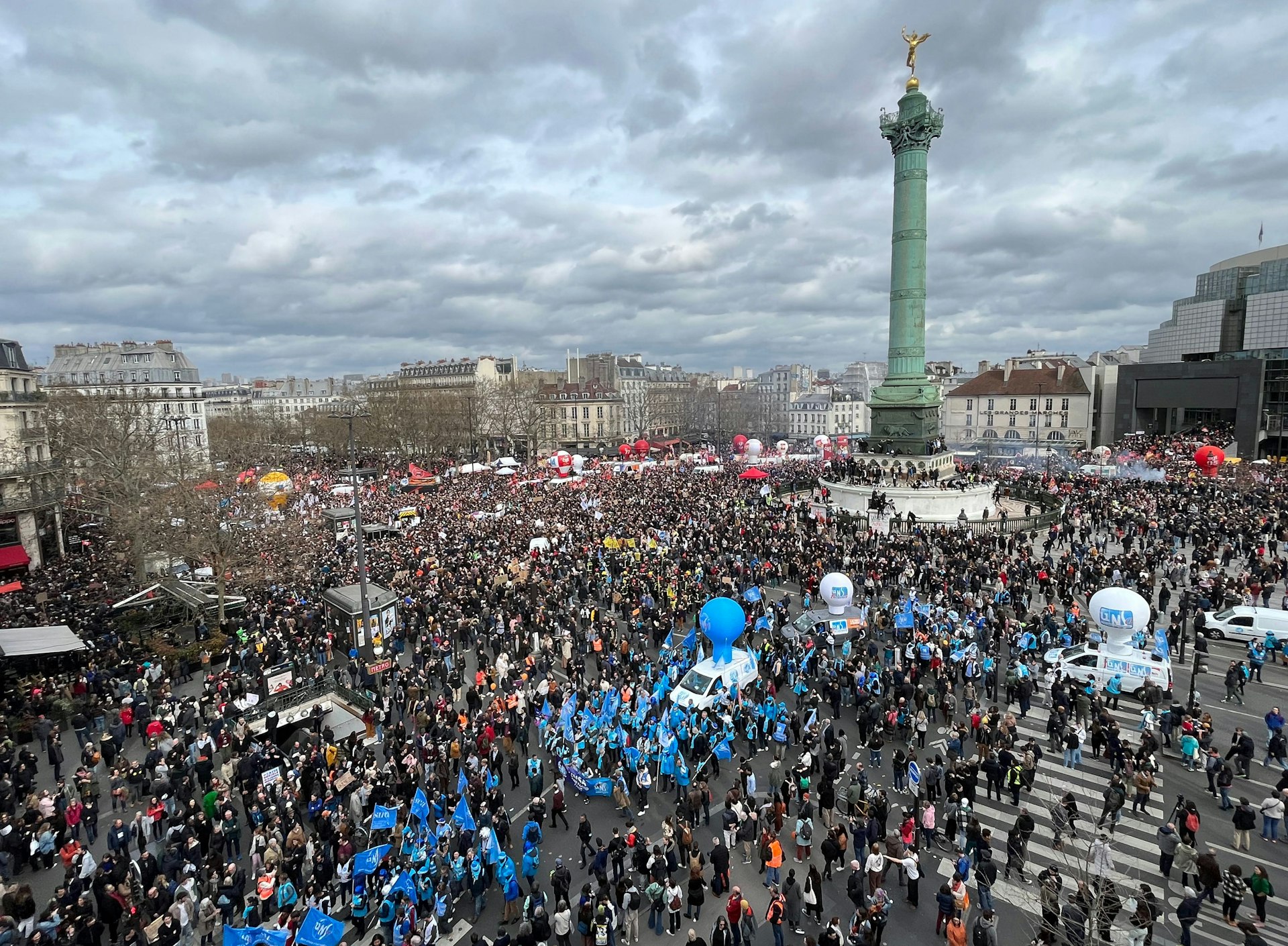
Is it safe to visit Paris?
Since October 2022, the US State Department has placed France at a Level 2 travel advisory, which recommends that citizens exercise “increased caution” due to threats of terrorism and civil unrest.
The US embassy has also been regularly releasing “demonstration alerts” advising people to avoid demonstrations and areas with significant police activity, to be vigilant of surroundings and to notify friends and family of their safety. The most popular spots for protests have been Place de la Bastille , Place de la République and Place de la Concorde .
Overall, authorized protests have been largely peaceful and can even be festive in atmosphere, with music, food and dancing. But this vibe has been largely restricted to the early start of the marches. The atmosphere tends to degenerate as the protests continue and the crowds of peaceful demonstrators begin to thin, and clashes between anarchist infiltrators and anti-riot police heat up. These violent protesters set fires, shoot fireworks, smash storefront windows and throw projectiles; in reaction, police have been using tear gas, water cannons and batons to disperse crowds.
Travelers should also be aware that protesters, mainly young people, have been staging spontaneous, unauthorized protests and sit-ins that have often ended in violence as well.
You can minimize the risk of being caught up in the chaos and being at the receiving end of either projectile or tear gas by steering clear of the protests as much as possible.
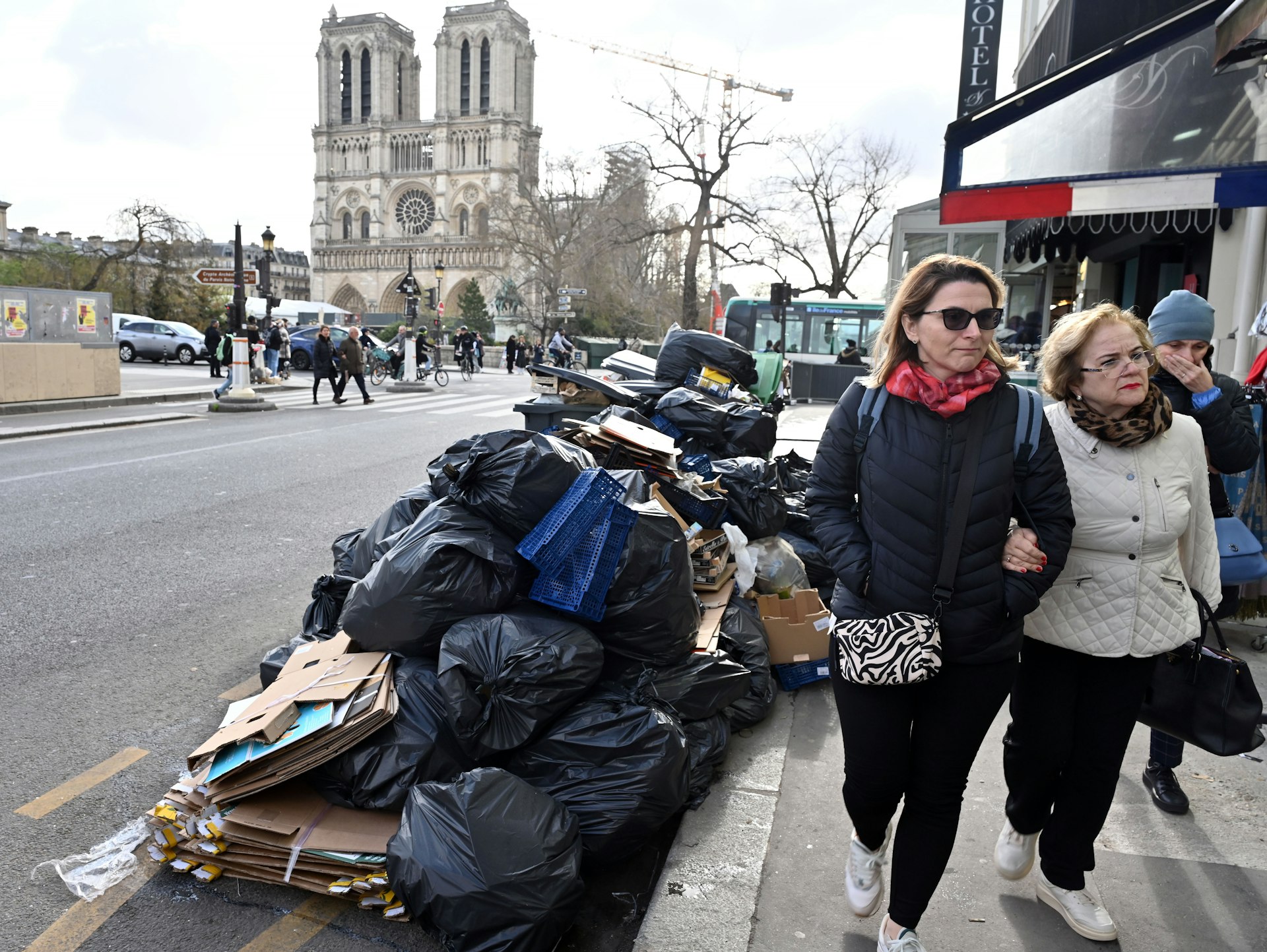
How can I keep up to speed on the latest developments?
Aside from international news sites, the best way to keep your ear to the ground on the latest developments in Paris is to monitor local English-language sites like France24 , RFI and The Local France .
On these platforms, you’ll find information about how Paris was left to stew in 10,000 tons of uncollected waste after garbage collectors joined the pension-reform strikes. Waste collection has since resumed, but workers warn strike action could resume.
For the latest updates, your best bet is Twitter, where tourist attractions and public transport operators post closures and disruptions in real-time. The city’s official tourism office also posts a comprehensive list of how strike action affects Métro, regional RER and Transilien train lines, as well as Parisian airports and attractions. On the most recent day of protests, March 28, walkouts resulted in the closure of the Eiffel Tower , the Musée d’Orsay , the Musée du Louvre and the Château de Versailles .
How do strikes and protests affect public transport and airports?
On strike days, service is drastically reduced on rail lines (including the Eurostar), buses, ferries and air travel.
The French civil aviation authority regularly asks airlines to cancel up to 30% of flights on and around strike days when air traffic controllers walk off the job. (Most of the cancellations have affected short-haul flights in and out of Paris–Orly; long-haul international flights out of Charles de Gaulle airport have seen fewer cancellations.) Ryanair boss Michael O’Leary has called for political intervention , complaining that the French strikes have forced his airline to cancel 230 flights, and that one million passengers have been affected.
Travelers should consult their airlines for updates.
Be aware, however, that protesters have also stormed Paris airports and set up blockades on highways, forcing travelers to reach the airport on foot. Give yourself plenty of time to get to the airport, especially if you’re traveling on a strike day.
Expect reduced service and overcrowded trains on the Métro , as well as on train cancellations. Count on packing a pair of good walking shoes.
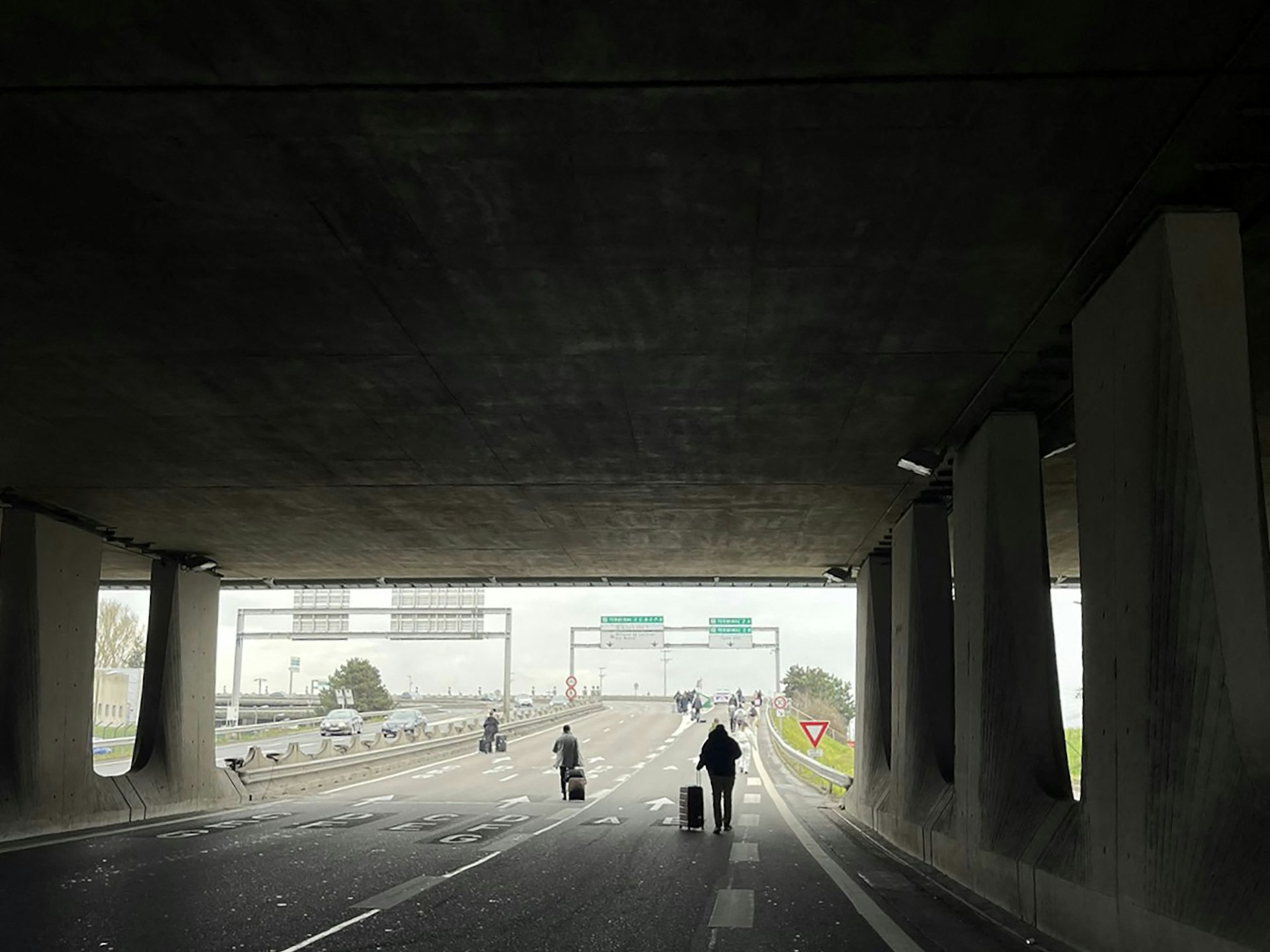
What do I do if closures affect my itinerary?
Restaurants and shops are generally open, but may close on strike days if they lie along demonstration routes (consult local media for those).
If your booking for the Louvre or Eiffel Tower is canceled due to strike action, take it as an opportunity to discover alternatives.
For instance, instead of the Louvre, check out the Musée Bourdelle , which is dedicated to the sculptor Antoine Bourdelle and which reopened to the public this month following extensive renovations. Instead of the Eiffel Tower, consider climbing to the top of the Tour Montparnasse , which offers sweeping views of the city (including perhaps the best view in town of the Eiffel Tower itself). And instead of Versailles, consider visiting the Château de Chantilly , a magnificent castle 40 minutes by train from Paris that houses the second-largest collection of antique paintings in France (after the Louvre) as well as sprawling gardens.
Overall, if you’re vigilant, flexible about last-minute changes and open to new experiences, your Parisian experience should go relatively smoothly.
Explore related stories
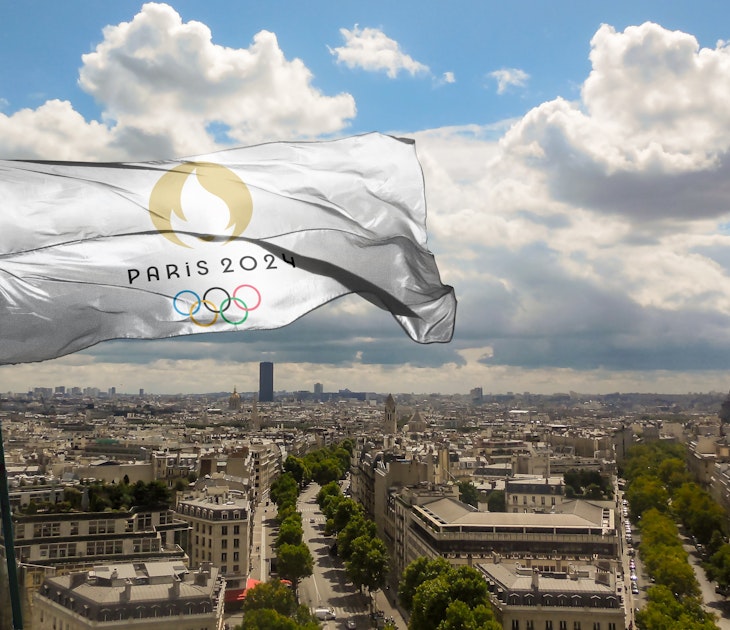
Health & Safety
Oct 3, 2023 • 4 min read
Reports of a bedbug outbreak in Paris have been making global headlines.
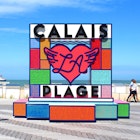
Apr 21, 2024 • 9 min read

Apr 19, 2024 • 8 min read

Apr 17, 2024 • 6 min read

Apr 17, 2024 • 8 min read

Apr 3, 2024 • 15 min read

Apr 1, 2024 • 8 min read
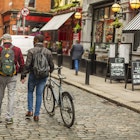
Mar 31, 2024 • 6 min read
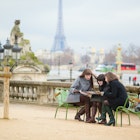
Mar 31, 2024 • 7 min read

Mar 29, 2024 • 6 min read
Stay up to date with notifications from The Independent
Notifications can be managed in browser preferences.
UK Edition Change
- UK Politics
- News Videos
- Paris 2024 Olympics
- Rugby Union
- Sport Videos
- John Rentoul
- Mary Dejevsky
- Andrew Grice
- Sean O’Grady
- Photography
- Theatre & Dance
- Culture Videos
- Food & Drink
- Health & Families
- Royal Family
- Electric Vehicles
- Car Insurance deals
- Lifestyle Videos
- UK Hotel Reviews
- News & Advice
- Simon Calder
- Australia & New Zealand
- South America
- C. America & Caribbean
- Middle East
- Politics Explained
- News Analysis
- Today’s Edition
- Home & Garden
- Broadband deals
- Fashion & Beauty
- Travel & Outdoors
- Sports & Fitness
- Sustainable Living
- Climate Videos
- Solar Panels
- Behind The Headlines
- On The Ground
- Decomplicated
- You Ask The Questions
- Binge Watch
- Travel Smart
- Watch on your TV
- Crosswords & Puzzles
- Most Commented
- Newsletters
- Ask Me Anything
- Virtual Events
- Betting Sites
- Online Casinos
- Wine Offers
Thank you for registering
Please refresh the page or navigate to another page on the site to be automatically logged in Please refresh your browser to be logged in
Is it safe to travel to Paris during strikes and protests?
A general strike is set to take place across france on thursday 23 march 2023, article bookmarked.
Find your bookmarks in your Independent Premium section, under my profile

Sign up to Simon Calder’s free travel email for expert advice and money-saving discounts
Get simon calder’s travel email, thanks for signing up to the simon calder’s travel email.
Protests and strike action have swept across France in recent months following President Emmanuel Macron ’s attempts to push through a controversial pension reform bill without a vote in the lower house.
Workers across the transport, education, fuel and utility sectors have walked out in protest of the bill, which would push the retirement age from 62 to 64.
Industrial action by sanitation workers has resulted in giant stacks of rubbish piling up in the French capital, plus Marseille , Nantes and Angers, a visible (and pungent) symbol of the resentment felt by public-sector workers.
And on Thursday (23 March), another general strike is set to take place across France, with further disruption expected.
But is it safe to travel to Paris during this period of protest and strikes? Here’s everything you need to know.
Is it safe to travel to Paris amid strikes and protests?
France has a proud reputation of being a nation unafraid of taking to the streets to make its disdain for political processes felt.
While recent protests have been significant in their scale, protests are not an uncommon sight in France, particularly in the capital.
Last weekend, police clashed with protesters after they lit a fire in the Place de la Concorde near the National Assembly building in Paris.
Footage showed police firing tear gas at protesters, while hundreds of people were arrested.
And on Friday (17 March), police pepper-sprayed students near the Sorbonne University.
Current guidance from the Foreign, Commonwealth and Development Office (FCDO) advises visitors to avoid demonstrations and remain vigilant.
“On 16 March, large-scale demonstrations started in central Paris and elsewhere in France and police presence increased.
“Protests could turn violent and/or continue. These could lead to disruptions to road travel.
“You should monitor the media, check the latest advice with operators before travelling, avoid demonstrations and follow the advice of local authorities.”
It adds: “If demonstrations do turn violent, a heavy police/gendarmerie presence is to be expected. In all cases, you should avoid demonstrations wherever possible and follow the advice of the local authorities.”
Travellers visiting Paris should avoid the Place de la Concorde, situated between the Champs-Élysées and the Jardin des Tuileries (the park adjacent to the Louvre) in the eighth arrondissement and the National Assembly, which are assembly points for the protests.
How will travel be affected?
Transport services across France are likely to be severely impacted by the general strike.
Eurostar has confirmed it will be running a revised service on Thursday 23 March, with eight services currently cancelled – click here to see the full list.
In a statement, Ryanair said it was expecting possible cancellations and delays on flights to and from France from 20 to 23 March.
“Any affected passengers will be notified as soon as possible,” it said.
“Ryanair advises all passengers to monitor their Ryanair app and the Ryanair website for the latest updates regarding their flight.
Elsewhere, the French Civil Aviation Authority (DGAC) has asked airlines to reduce their flight schedules to and from Paris Orly and certain French airports as a result of the strike action.
In a statement, Air France said: “Air France plans to operate on these days 95 per cent of its flight schedule, including all its long-haul flights and its flights to and from Paris Charles de Gaulle.
“Last-minute delays and cancellations cannot be ruled out.
“The flight schedule is updated and customers affected by cancelled flights are notified individually by SMS and e-mail.”
Anyone planning to travel to France over the next 48 hours should check with their provider ahead of departure.
Join our commenting forum
Join thought-provoking conversations, follow other Independent readers and see their replies
Subscribe to Independent Premium to bookmark this article
Want to bookmark your favourite articles and stories to read or reference later? Start your Independent Premium subscription today.
New to The Independent?
Or if you would prefer:
Want an ad-free experience?
Hi {{indy.fullName}}
- My Independent Premium
- Account details
- Help centre
- Become a Member
Travel During the Paris Protests: What’s it Really Like in the City?
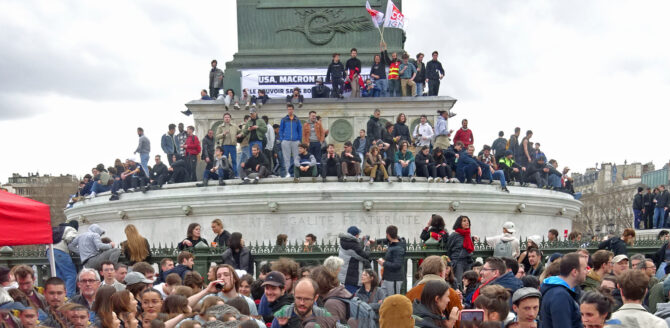
You’ve seen the images on TV. Street protests turn violent in France. Shop windows smashed, objects set on fire. The trash has piled up on the capital’s sidewalks and in the streets. Does this portray an alarmist view of the situation? What’s really going on? And is it safe to travel to Paris right now?
First, a little background. A series of strikes and manifestations , or street demonstrations, has taken place regularly against the government’s planned pension reform over the last few months. During his presidential campaign, President Macron had made a campaign promise to raise the retirement age from 62 to 64 — something he claims is vital to preserve France’s “share-out” system since people are living longer. (Other alternatives would be: increasing the contributions from those in the workforce, or cutting the value of pensions.) Yet the reform is unpopular. And when the legislation went to the National Assembly on March 16, Prime Minister Elisabeth Borne invoked a special constitutional power called L’article 49.3, which avoided a vote in the lower chamber— where they wouldn’t have a majority— to push through the reform as law. This was the 100th time the article has been used since the founding of the Fifth Republic.
Though the move was legal, it has only increased French anger at what is seen as an undemocratic process. The French who take to the streets— in a long tradition of protests— are doing so because they feel it’s the only way to make their voices heard. With rising food prices and the decline of purchasing power, the pension reform is the straw that broke the camel’s back. Among those we’ve spoken with on the streets, the perception is that the president is not listening.

L’Assemblée nationale. Photo credit: Dinkum / Wikimedia commons
What and where are the street protests?
Tuesday, March 28th was the “ 10ème journée de mobilisation ,” or the 10th day of nationwide demonstrations. According to the Ministry of the Interior, 740,000 people gathered in France, including 93,000 in Paris. The unions claimed a higher number. The first such day of mobilization took place on January 19. These street demonstrations are announced in advance and follow specific routes, also announced in advance, usually including Bastille, Nation, place de la République and/or place d’Italie. Mostly these protests are peaceful. The unions will wave their flags and signs, play music, and often have trucks with entertainment (much like a parade). Check out this photo essay we just published to get a sense of what these demonstrations look like.
The images you saw on the news? Last Thursday night after the street protest, the manif’ was infiltrated by violent casseurs , or anarchists, who destroyed private property and set fires. A number of arrests were made by the police. There’s no place for this kind of violence, and it angers many of the protestors who are trying to express themselves peacefully. It also turns public opinion against the demonstrators.
The unions have now called for the next journée de mobilisation (the 11th) to take place on Thursday, April 6.
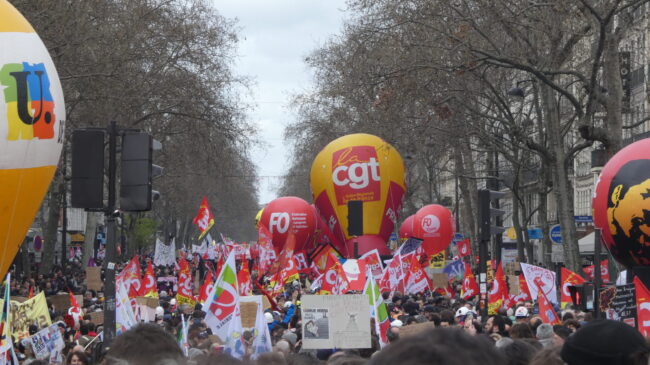
Demonstrators flying flags and balloons of various unions in Paris on 23 March. Photo credit: Rémi Simonnin / Wikimedia commons
Often the Paris metro system is affected during the demonstration days. This only happens if members of the RATP, or Paris public transport authority, vote to go on strike. Metros and buses still run, but less frequently. The driverless lines, no. 1 and 14, still operate at their normal frequency.
Need to know: Bus routes can be altered or stopped altogether, depending on the protest route. In general, the RER suburban lines are more affected than the metro. The RATP gives real-time information about the closures on their official website and app.
For those Parisians not participating in the demonstrations, it’s “life as usual.” Work, errands to the store, school pick-up, restaurant dinners with friends. Paris is a walkable city, and biking has become more popular, so we find ways to get to your meetings.
It’s easy to avoid the street protests altogether, depending on what neighborhood you’re in. For example, the left bank districts are generally not as affected (though there was a demonstration route near Place Denfert-Rochereau and Place d’Italie a few weeks ago).

Paris- Charles-de-Gaulle airport, aerial view. © Paris Tourist Office/ JOUANNEAUX, Jean-Marc pour Aéroports de Paris
What about the airports and train stations?
This depends whether the staff (such as air traffic controllers) decide to go on strike. For example, at Orly airport this can reach a cancellation of 30% of flights. International long-haul flights are generally not affected. This past Tuesday during the demonstration day, the Orly bus was operating as usual between Orly airport and Place Denfert-Rochereau. The RER B from CDG airport can be affected, in which case we recommend taking a G7 taxi. The taxi prices from the airport are fixed by the government.
Likewise, SNCF, the French national rail company, has been canceling select trains on strike days. Know that major cities are still being served and that people are still traveling by rail during this time.

Louvre Pyramid in Paris. © Pixabay at Pexels
Do monuments and museums close on demonstration days?
This also depends on whether the staff decide to go on strike, or whether there’s not enough personnel to manage the site due to public transportation issues. This doesn’t happen during each demonstration day. If there are going to be closures, announcements are made via the website or social media channels. For example, The Eiffel Tower, Louvre, and Chateau de Versailles were closed during the last strike day on Tuesday.
Note: there are so many different museums in Paris that there is always *something* open. See our article “ Choose Your Muse: Match Your Personality to a Paris Museum ” for a options.
And restaurants?
We have been dining as usual in Paris restaurants. None of our reservations have been canceled.
🚮🇫🇷 Insolite : l’artiste urbain Bisk transforme les tas monstres de poubelles à #Paris , en poubelles monstres. (Le Monde) pic.twitter.com/HIkjkJdJE7 — Mediavenir (@Mediavenir) March 24, 2023
What about the trash? Is it as bad as it looks?
Paris is no stranger to strikes by the trash collectors, but the latest may be the worst in recent memory. Mountains have trash have been accumulating on the streets and sidewalks. Building managers have even advised residents to keep the trash in their apartments. However some neighborhoods have not been affected at all. For example, the 13th arrondissement trash collection is overseen by a private company, and so the streets are clean — in stark contrast with the neighboring 14th arrondissement where it’s only been collected a few times in the last three weeks. But there’s good news: The CGT union announced the end of the strike today, and trash trucks were seen resuming their routes in the city. Note that access to one of the trash incinerators in the suburbs was still blocked by protestors.
That’s not to say that the strikes won’t resume again. Some union representatives are threatening to start up again as soon as possible, and continue their action until the pension reform has been withdrawn. Meanwhile Prime Minister Borne has extended an offer to the unions to meet at the negotiating table.
Have other questions? We’ll be happy to help. Just leave them in the comment section below.
Lead photo credit : Demonstrators on the July Column. Photo credit: Roland Godefroy / Wikimedia commons
Related Articles

Behind the Scenes of the 2024 Summer Olympics and Paralympics in Paris

From Theater to TikTok: An Interview with TheQueenFatima

Parisian Language and Culture: A Guide for International Visitors
By bonjour paris editors.
BP's expert editorial team includes some of the city's top English-language journalists.
- Environment
- Road to Net Zero
- Art & Design
- Film & TV
- Music & On-stage
- Pop Culture
- Fashion & Beauty
- Home & Garden
- Things to do
- Combat Sports
- Horse Racing
- Beyond the Headlines
- Trending Middle East
- Business Extra
- Culture Bites
- Year of Elections
- Pocketful of Dirhams
- Books of My Life
- Iraq: 20 Years On
Is it safe to travel to France during strikes and protests?
Emirates and etihad airways flights to and from paris are operating as normal, but other airlines have warned of disruptions.
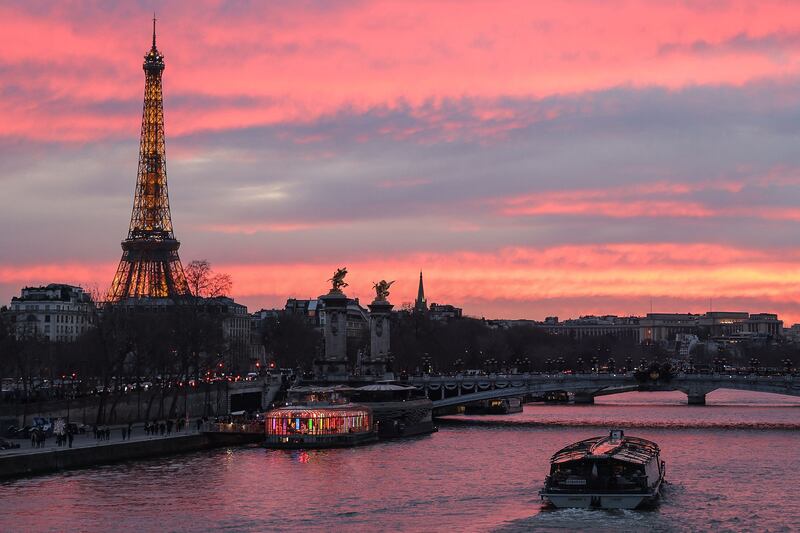
Protests and strikes are taking place in Paris and across France. AFP

On Tuesday, piles of rubbish built up over the last few weeks were set on fire around central Paris.
Armed police were out in force and fire engine sirens could be heard throughout the evening in the City of Light.
Near the Place de la Concorde, protesters and officers clashed.
And from the city’s rooftop terraces, often the place where travellers flock for the best views of the Eiffel Tower and other landmarks in the world's most visited country, large smoke plumes could be seen rising up from the streets below.
There are further strikes planned and for travellers heading to Paris or France at this time, here's what to know.
Why are there strikes and protests in France?
Protests and strike action have been taking place across France since the government announced a contentious bill to raise the country's retirement age from 62 to 64.
Demonstrators believe authorities are not listening to the people.
On Monday, President Emmanuel Macron narrowly survived a vote of no confidence — a move that sparked more protests across Paris.
And tonight the streets are burning as protestors set alight the piles of rubbish, of which Paris City Hall estimates there are some 13,000 tons of on the streets. #parisprotests #france pic.twitter.com/at1UFmQOOM — Hayley (@HayleyScottie) March 20, 2023
On Wednesday afternoon, the French president spoke live on national television about the proposed new bill, and said he was “willing to accept unpopularity over the pension reform”.
Sanitation workers remain on strike and rubbish piles littered around the city, the ones that haven't been ignited, continue to grow.
Further national strikes are planned with several industries due to take part.
Is it safe to visit France currently?
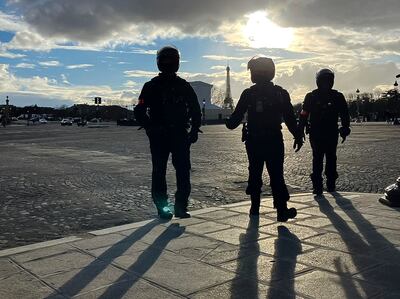
Travellers have not been told not to travel to France during strikes and protests.
The UK Foreign Office has warned of disruption and delays, but does not imply that travel plans should be cancelled.
The protests are against the government and not aimed at travellers, meaning tourists in Paris should remain safe, so long as they avoid protest activities.
Holidaymakers wishing to avoid protests can check with their hotel concierge and local news services to find out which areas have protests planned each day.
Public gatherings and protests have been officially forbidden on Concorde square, but travellers should still avoid this area and its surroundings during official days of strike action.
Are protests in Paris affecting holidays?
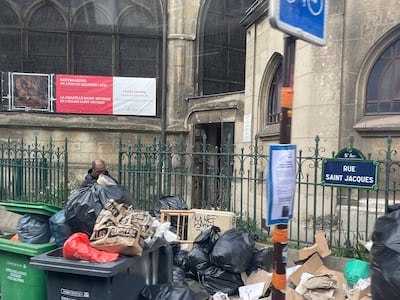
While unsightly piles of rubbish aren’t the best inclusions in holiday pictures, they are somewhat unavoidable in many parts.
Some roads and paths where streets are narrower are quite difficult to pass, especially in the evening when rubbish is strewn onto the roads and set alight.
Public transport services are impacted by the strikes, with several metro trains being cancelled on Tuesday evening after protests took place in the city centre.
Tourists with tickets booked for the Louvre Museum on Thursday, the next day of national strikes, have been advised that some areas of the museum may not be fully accessible.
Are flights being cancelled at Paris Charles de Gaulle Airport?
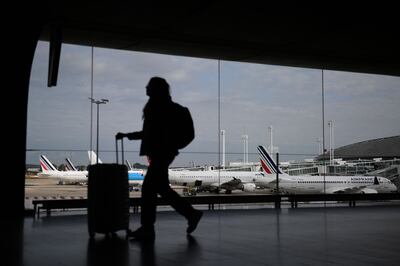
On Tuesday and Wednesday, Air France cancelled 5 per cent of its services from Paris airports, including long-haul services.
Emirates and Etihad Airways flights to and from Paris are operating as normal at the time of writing. Other airlines including KLM and Ryanair have announced possible disruption to flight services this week.
It's possible more flight cancellations or delays could occur at airports around the country on Thursday as air traffic controllers are expected to take part in the action.
What should I do if I have upcoming travel to Paris?
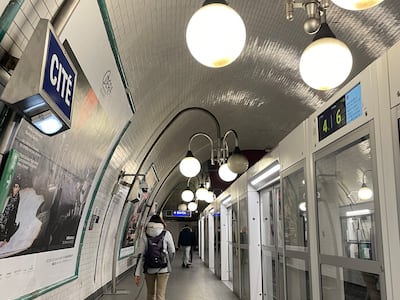
Tourists with upcoming travel plans to France should reconfirm itineraries, booked activities and flight details before travelling.
When in the city, leave time for disruption to travel plans. Recent protests have caused disruptions at train stations and on metro services, and some roads in central Paris have been blocked.
The state-owned public transport operator RATP posted a statement on its website advising travellers to expect “very disrupted traffic” on Thursday on rail and metro networks. It also said that bus and trams will operate almost as “normal”.
Eurostar has also confirmed it will operate a revised service on Thursday, with trains to London, the Netherlands and Belgium cancelled.
Travellers should consider not using public transport to get to and from the airport. Instead, try to pre-book an airport transfer. It's also a good idea to leave extra time at the airport, as some operations such as immigration services, may only have skeleton staff.
Are other cities in France impacted?
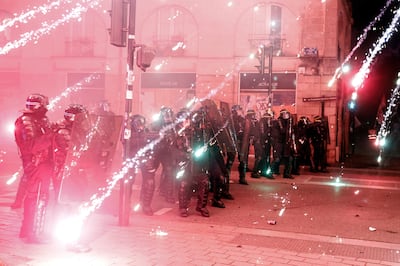
While Paris has been at the forefront of protests, other cities around Paris are also facing disruption as the national day of strike action on Thursday will take place across the country.
Protests have been reported by local media in Nantes, Marseille, Bordeaux and other cities around France.
Checking In
Travel updates and inspiration from the past week

- Colorado River Crisis
- Coachella Valley Questions Answered
- Fentanyl Crisis
- Palm Springs International Film Festival
- I-Team Investigations
- Neighborhood Heroes
- Salton Sea Project
- Local Forecast
- First Alert Weather Alert Day
- Live Weather Cams throughout Coachella Valley
- First Alert Weather Insider
- Earthquake Alert
- Photo Galleries
- Coachella Valley Firebirds
- Scholar Athlete of the Week
- Galleri Classic
- High School Football
- Las Posadas
- Fiestas Patrias
- La Poderosa
- Salton Sea: La Agonía de un Paraíso
- St. Jude Dream Home
- Gas Al Mejor Precio
- Quienes Somos
- 2024 Election Results
- Local Politics
- National Politics
- Livestream Special Coverage
- Livestream Newscasts
- Desert Chat
- Do The Right Thing
- Entertainment
- Eye on the Desert
- Healthy Living
- Healthy Pets
- Impact Grants
- Mother’s Day
- One Class at a Time
- Desert Experts
- CV Golf Card
- Submit Tips, Pics and Video
- Work at KESQ
- Explore Local Jobs
- Intern at KESQ
- Advertise with Us
- KESQ Jobs and Internships
- TV Listings
- CW 5 Palm Springs
- FOX 11 Palm Springs
- Closed Captioning Information
- Download the News Channel 3 News apps
- FCC Public File
- 2023 EEO Report
- 2022 EEO Report
- 2021 EEO Report
- 2020 EEO Report
- 2019 EEO Report
- Public File Help
- Newsletters/Alerts
France violence: Is it safe to visit Paris and other cities right now?
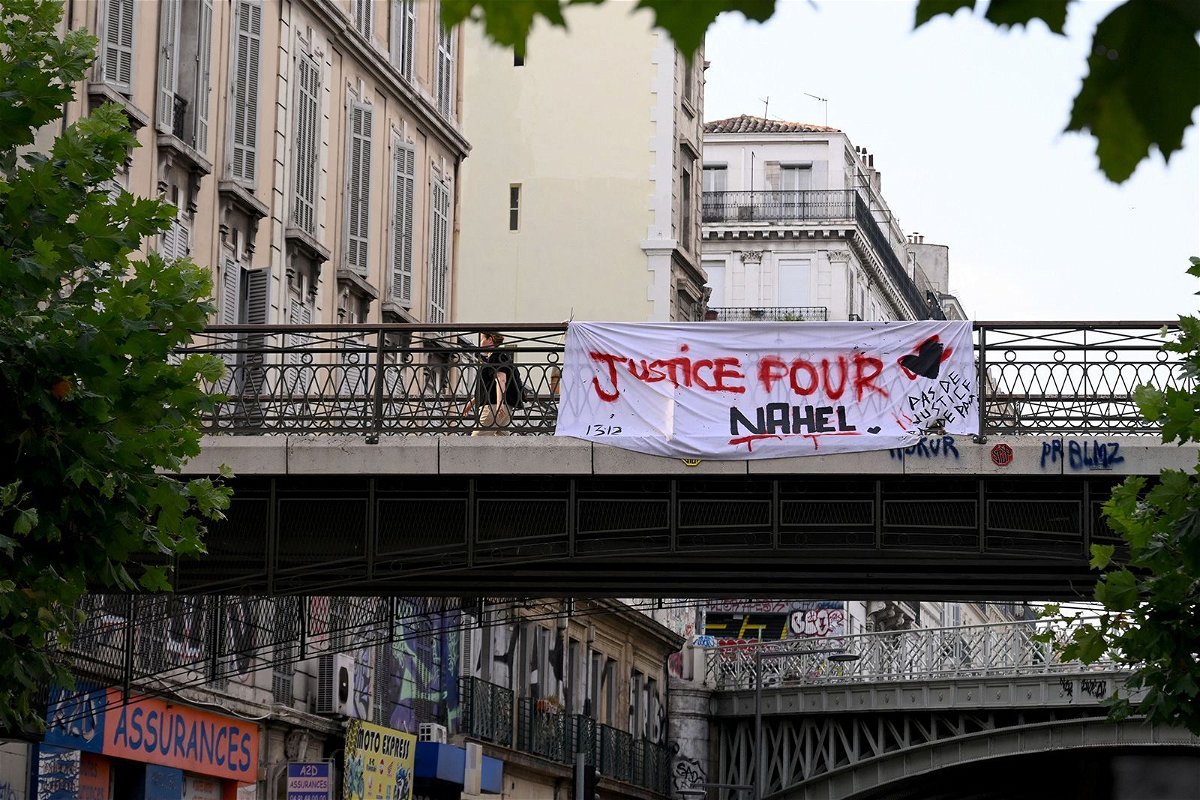
By Barry Neild and Xiaofei Xu, CNN
(CNN) — With violent and fiery protests gripping Paris and other cities across France in the wake of the fatal police shooting of a teenage boy, many of the millions planning a visit there this summer will be wondering if it’s safe to go ahead with their trip.
Chaos, destruction and confrontations have led to curfews in some towns around the capital. Bus and tram services have faced disruptions with a nationwide shutdown ordered for 9 p.m. on June 30 ahead of what was another night of widespread violence.
As peak travel season gets underway – further boosted by the start of the two-week Tour de France cycle race – the world’s most-watched sporting event – here are some answers to the questions that visitors may be asking.
What’s happening in France right now?
Areas within some of France’s major cities have erupted in violence for several successive nights after a teenager of Algerian descent named Nahel Merzouk was fatally shot by police — an incident caught on video.
Confrontations between police and protesters began on the night of June 27 in the Parisian suburb of Nanterre, where Merzouk was shot, and have since spread to other parts of the capital and several other cities.
Police said at least 2,000 people, many of them minors, have been detained during subsequent nights of unrest. Merzouk’s death appears to have become a flashpoint for anger about racial inequality in France and claims of police discrimination.
Buildings, vehicles and debris have been set alight during the turmoil. France’s president, Emmanuel Macron, has been holding crisis talks amid concerns that the country could see a replay of violence in 2005 that led to a state of emergency.
More than 45,000 police and gendarmes were deployed on Sunday night to try to contain the unrest. Officials said just 157 people were arrested and the situation appeared calmer.
Which cities are affected?
Protests began in Nanterre, a suburb of northwestern Paris’ wider metropolitan area. Subsequently there have been protests in other areas around the capital: Bezons, Gennevilliers, Garges-lès-Gonesse, Asnières-sur-Seine, Montreuil, Neuilly-sur-Marne, Clamart and Meudon.
Further out, Trappes, Clergy, Guyancourt and Vigneux-sur-Seine have also been affected.
These are all beyond the “Periphique” ring road that encircles the central Paris “arrondissements,” where most of the main tourist attractions and accommodations are located.
Elsewhere in France, Elite RAID police have also been deployed to key tourist cities Marseille and Bordeaux in the south, as well as the northern cities of Lille — a stop for the Eurostar train from London — and Roubaix.
What about curfews?
Limited curfews have been imposed in two towns close to Paris at the center of some of the worst violence.
In Clamart, a curfew from 9 p.m. to 6 a.m. was put in place on Thursday and was set to continue nightly until July 3. Restrictions from 11 p.m. to 6 a.m. will be in place in Neuilly-sur-Marne.
How has transport been affected?
Transport networks have been severely affected. On Friday, France ordered the shutdown of all bus and tram services nationwide by 9 p.m.
The measure, announced by the Ministry of the Interior, came a day after some services in and around Paris were suspended as a direct result of the violence, some of which has targeted transport infrastructure.
In Clamart, one of the badly hit towns, a tram was set on fire. Several buses were torched in the Paris suburb of Aubervilliers.
On Friday, some bus services were disrupted in Paris but the Metro system was operating as normal.
The Nanterre-Préfecture train station was closed.
In Lille, bus and tramways were shut down after 8 p.m. on Thursday. On Friday daytime, services were more or less running normally, with some diversions in place.
In the southern city of Marseille, public transport was due to stop services at 7 p.m.
There has been no disruption to the Eurostar service connecting London, Lille and Paris as a result of the protests. French intercity trains are also not affected.
It’s not clear if there will be any further shutdowns or disruptions if the protests continue in coming days and those using them are advised to check websites for updates before traveling.
Is it safe to visit?
While the teenager’s death and subsequent outrage has sent shockwaves across France, much of life continues as normal. The central areas of Paris, home to the Louvre Art Museum and the Eiffel Tower have been almost totally unaffected. Likewise the rural and coastal areas that host many visitors.
That said, it’s not clear at present how long the protests will continue and what further measures the French government will adopt to try to tackle them.
Travel advisories from several countries warn of the protests and urge people to monitor the news and check in with tour operators; none have advised against traveling to France altogether.
The US State Department issued a security alert on June 29 covering France that highlighted the violent fallout of the shooting of the teenager and warned its citizens to steer clear of trouble spots.
“These demonstrations, along with spontaneous protests, are expected to continue and may turn violent,” it said.
“US citizens should avoid mass gatherings and areas of significant police activity as they can turn violent and result in clashes.
“Some cities are imposing curfews. As always, it is a good practice to notify friends or family of your whereabouts. Note that public transportation is being affected.”
It suggested monitoring media outlets France24 , RFI and The Local , for updates.
A US “level 2” advisory issued in October 2022 by the State Department remains in place urging travelers to “exercise increased caution in France due to terrorism and civil unrest.”
China’s foreign ministry on Sunday has warned its citizens in France to remain vigilant, saying a bus carrying a Chinese tour group in the southern city of Marseille had its windows smashed, resulting in multiple minor injuries.
China’s Consulate General in Marseille has lodged an official complaint and urged French authorities to ensure the safety of Chinese citizens and property amid the unrest.
The ministry did not say when the incident took place or how many people were injured. It said all the tourists on the group have since left France.
The UK Foreign and Commonwealth Office also issued warnings but stressed most visits to France were without incident.
“The protests may lead to disruptions to road travel or targeting of parked cars in areas where protests take place,” it said on its website .
“You should monitor the media, avoid protests, check the latest advice with operators when travelling and follow the advice of the authorities.”
It went on to advise travelers to get insurance and noted: “Around 17 million British nationals visit France every year. Most visits are trouble-free.”
The-CNN-Wire ™ & © 2023 Cable News Network, Inc., a Warner Bros. Discovery Company. All rights reserved.
Jump to comments ↓
CNN Newsource
News Channel 3 is committed to providing a forum for civil and constructive conversation.
Please keep your comments respectful and relevant. You can review our Community Guidelines by clicking here
If you would like to share a story idea, please submit it here .
Is Paris Safe To Visit Right Now? A Complete Guide
Is Paris safe to visit right now? This guide has the answer, with info on the latest protests and general crime levels in the city.

Paris is unquestionably one of Europe’s bucket-list metropolises. From the priceless collections of the Louvre Museum to the soaring outline of the Eiffel Tower, the majestic domes of Montmartre to the moody literary haunts of the Latin Quarter, there’s all sorts to get through on a trip to the bustling French capital. But is Paris safe to visit right now?
There’s no denying that 2023 has been a tough year for the city. Waves of violent protests were unleashed in the aftermath of the brutal police killing of 17-year-old Nahel Merzouk in late June. They kick-started street actions that all but shut down key neighborhoods and had oodles of travelers rethinking their plans to hit the home of the Mona Lisa and Notre Dame.
On top of that, Paris lays claim to some of the most dangerous areas in the whole of France ; spots where the murder rate, levels of gun crime, occurrences of property theft, and more are something like 100% higher than in other parts of the country. This guide will deal with the lot, by looking at the situation on the ground and what you can expect from a jaunt to this town of crispy baguettes and Loire wines at the moment. So, is Paris safe to visit right now?
Table of Contents
Is Paris safe to visit during protests?

The number one question people have when it comes to planning jaunts to the French capital is whether it’s safe to visit during protests. Right now, there’s no official warning against travel to France or Paris listed by the UK Foreign Office (FCDO). That’s generally seen as the gold standard of travel warnings. However, the FCDO do advise that travelers “avoid areas where riots are taking place” and “monitor the media” for updates on the latest developments.
The Foreign Office also warn about the potential for disruption to travel plans because of local transportation shutdowns and curfews. However, it’s worth noting that the Paris metro network and light rail network are now both running as normal.
The US Embassy in Paris and the US State Department have increased their security warnings for travel to the country but have stopped short of recommending against travel to Paris. They say that all travelers heading to the big city should “exercise increased caution,” and be certain to avoid “areas of significant police activity.”
The good news is that most of the rioting in Paris has been limited to specific areas in the greater Paris Metro Region. The suburb of Nanterre on the far northwestern edge of town has borne the brunt of the violence. There have also been flashpoints in more touristy areas, such as the Champs Élysées and the Rue de Rivoli, though things seem to have subsided in those districts as of July 1 st .
Is Paris safe for tourists to visit in 2023?

Let’s put things into perspective a little: Paris is among the most visited cities in the world. It sees upwards of 44 million travelers every 365 days. That’s more than Bangkok; more than London. The vast majority of people who come and go do so without any issues or troubles at all, which means it’s probably fair to say that Paris is safe to visit in 2023.
Of course, the sudden eruption of street violence and mass protests in the wake of the killing of Nahel Merzouk does add extra concerns. For that reason, it’s more important than ever that you plan your trip to the French capital well and avoid areas that are known epicenters of violence – notably the district of Nanterre.
As per foreign office advisories, it’s also a good idea to stay in touch with the latest updates on protests via the media. That way, you can stay abreast of changes on the ground and dodge big gatherings and areas where there’s more likely to be problems. On top of that, we’d always recommend avoiding or being extra careful in known crime hotspots in Paris, such as the quarter of Barbès-Rochechouart, the Gare du Nord, and Saint-Denis.
Is Paris safe to travel alone?

Maybe. There are higher risks associated with solo travel wherever you choose to go, whether it’s the museum-fringed streets of Paris or the rolling steppes of eastern Russia. The point is that you’ll always have to have your wits about you to a greater extent if you’re planning a trip on your own than if you were going as part of a group.
Perhaps the most important thing to note here is the higher prevalence of petty crimes, thefts, and pickpocketing perpetrated against travelers who aren’t in a group. It’s a simple fact that being without company means you’re a more tempting target for thieves and muggers. That’s why we’d reiterate our advice to steer clear of the most crime-heavy parts of the town.
It’s also always a good idea to follow the basic safety principles of traveling alone: Never carry expensive goods on your person; Try to avoid being alone at night; Dodge neighborhoods and areas that haven’t got the best reputations (there are quite a few of those in Paris); Don’t drink too much or take drugs.
Is Paris safe at night?

Paris is about as safe as any other major capital city when the sun goes down. Most locals and regular visitors report walking alone after dark without any major issues. Many also use the public transport system until it closes (around 1.15am) without any problems.
All that’s backed up by Numbeo’s crime stats for the metropolis, which reveal that there’s only a moderate risk of being mugged or attacked in the stomping ground of the Mona Lisa. That might not sound overly encouraging, but it means Paris has better numbers than a whole host of cities in the US and Mexico, for example.
Sadly, Numbeo also ranks Paris as low on the safety scale when it comes to walking alone at night. That’s largely because most of the crime in the city occurs after dark, protests and rioting typically turn violent after dark, and there’s a heightened risk when traveling solo at night (see above). This all makes it more important than ever to avoid the most crime-ridden parts of Paris, especially the areas of Sant-Denis, the Gare du Nord, and Barbès-Rochechouart, after 8pm.
Is Paris safe to live?

Yes, Paris is a safe city to live in. We can say that because it was named the 19 th most livable city on the planet back in 2018 and consistently scores highly when it comes to health provision, public health, provision of urban green spaces, cultural events, clean water – the list goes on and on.
Mind you, the picture wasn’t always that rosy. The Local reported that Paris recorded the worst drop on livability rankings of any major capital prior to 2018, all due to the mounting dangers of terror attacks in the town. What’s more, Paris still has some work to do to get into the top 10 most liveable places on the planet. It currently sits behind other major European and North American first cities, such as Vienna, Vancouver, and Copenhagen to name just three.
It’s also worth pointing out that there are certain areas in Paris that you should be sure to avoid if you’re looking to settle down in the French capital. The 19 th and 18 th arrondissements are widely known to have some of the highest crime rates in France, for example. Meanwhile, other areas like the 1 st arrondissement, are likely to prove outrageously expensive and full of tourists.
Is public transport safe in Paris?

On the whole, the Paris metro, rail, and bus system is considered safe for travelers. In fact, it’s hard to imagine how you’d ever get to see the bucket-list draws of the city without using it. Even key sights within the central districts – the Louvre, Notre Dame, Montmartre – are a little too far to walk between, even if you’re pumped up with strong French coffee and plenty of baguettes!
Of course, that doesn’t mean that the Parisian public transport system is 100% safe. Period. There are always risks traveling in big cities, especially when it comes to pickpocketing, which the UK Foreign Office lists as the single biggest threat faced by international travelers in France.
To combat that, always keep a keen eye on your valuables and consider using a specialized travel belt to keep your money and important documents safe. People carrying backpacks can also sling them onto the front of their bodies for the duration of the trip, especially when riding busy trains and buses. Also, be extra vigilant at night, when the stats show that there are more incidents of theft throughout the whole city.

Travel safety tips in Paris
We’ve already touched on a couple of the most important travel safety tips for Paris in the sections above. But it’s probably worth running through them one more time to hammer home the things you can do to make your trip to see the Eiffel Tower and the Arc de Triomphe the once-in-a-lifetime city break it’s supposed to be:
- Avoid dangerous neighborhoods – Probably the number one best thing you can do to ensure you trip goes off without a hitch is to stick to the less-dangerous parts of Paris. That means avoiding areas that are known crime hotspots – like Barbès-Rochechouart and the Gare du Nord – but also areas that are flashpoints for riots and protests – such as Nanterre.
- Don’t travel alone – While Paris is generally seen as a safe city for solo travelers, there’s always a higher chance that you’ll fall victim to anything from pretty crime to serious assaults when you travel on your own.
- Keep up to date with the media – Recent protests and riots have caused plenty of trouble in the French capital. The UK Foreign Office and US State Department recommend staying abreast of updates on the news so that you know what parts of Paris to avoid if things continue to happen.
- Keep your valuables hidden – The most-reported crime against British nationals in Paris is pickpocketing. To reduce the risk that you fall victim to that, ensure you keep your valuables well hidden and make use of money belts and smart wallets.
- Get travel insurance – Travel insurance is a must, no matter where you decide to go. It offers coverage for healthcare if things go wrong, but can also be a safety net against theft, loss of valuables, and even travel cancellations, which are all the more likely while protests continue on in Paris.
For more than 11 years, Joe has worked as a freelance travel writer. His writing and explorations have brought him to various locations, including the colonial towns of Mexico, the bustling chowks of Mumbai, and the majestic Southern Alps of New Zealand. When he's not crafting his next epic blog post on the top Greek islands or French ski resorts, he can often be found engaging in his top two hobbies of surfing and hiking.
Related posts

The 5 Most Dangerous Places In Paris To Watch Out For

The 9 Cheapest Places to Live in France On A Budget

Basic French Phrases: 59 Essential Words to Learn

Is Paris Safe in 2024 and Beyond? And Should You Travel to France Now?
Last Updated on April 23, 2024

Many travelers want to know whether Paris is still safe to visit– and their concerns are understandable. Following isolated terrorist attacks and occasionally-violent street demonstrations in recent years, as well as a global pandemic, worries about the safety of the French capital have become more common.
But the truth is that Paris generally remains a safe destination, and with some precautions in mind all visitors should feel comfortable traveling to the capital. Read on for the latest information on travel advisories and precautions to take when visiting France, and for my full safety tips for anyone planning a trip to Paris.
I start by covering some of the topics most likely to be on travelers’ minds, followed by more long-term safety issues and concerns. You can use the “Explore This Article” tab below to directly navigate to the information of most immediate interest and use to you.
Explore This Article
Current Safety Advisories for Paris & France
The US State Department currently shows a yellow, Level 2 travel warning for France, corresponding to the advice “Exercise increased caution” and citing risks including terrorism and potential civil unrest. See the full advisory here .
Traveling from another country? To see current safety advisories for your country of origin and specific safety tips from your Embassy or Consulate in France, see this page.
Statistically Speaking, Paris Remains Very Safe

The Economist-sponsored “Safe Cities” report for 2021 ranked Paris as the 23rd-safest major city in the world out of 60– making it almost exactly middling. And while the city has admittedly taken a significant knockdown in global city safety ratings due to recent terrorist attacks and other factors, violent crime is still generally uncommon in the capital.
OSAC, the US Bureau of Diplomatic Security, notes tha t tourists are generally safe in the city, and that street crime such as pickpocketing remains the primary concern. These notes are particularly striking and paint a clearer picture of the sorts of crimes visitors need to be most on guard against:
According to the Violent Crime Risk Index (ViCRI), a resource for urban-level violence risk data and ratings, Paris ranks as a class 2 city on an 11-point index scale measuring homicide, aggravated assault, robbery, and rape risks. Street crime, however, is a concern, most notably in areas frequented by tourists. Consular officials throughout France report that U.S. travelers are frequently victims of pickpockets, swarm and grabs, or scams. (OSAC, France Country Security Report, available here )
To break it down a bit, Paris ranks a “2” on a scale reaching up to “11” when it comes to violent crime. Moreover, violent crimes rates in France are roughly on par with Canada’s , and are three times lower than in the US.
According to French government statistics, even when taking into account deaths from terrorist attacks, the homicide rate in Paris per 1,000 inhabitants between 2015 and 2017 was only 0.019 (0.014 if you exclude the attacks).
You get my drift. Violent crime, and especially the sort that threatens lives, is relatively rare in Paris. Gun violence there is astronomically lower than it is in comparably sized cities in the US.
And while the US State Department website advises that tourists remain aware of their surroundings and exercise caution due to potential terrorist threats, take note: they don’t recommend cancelling your trip or avoiding the city.
My conclusion? Yes, there are some risks that can’t be denied. Most large metropolitan cities, including London and New York, carry similar risks in our globalized world. Should you avoid setting foot in these places altogether?
Everyone has to make choices that they feel comfortable with, but from my perspective, you’d be greatly overestimating the dangers you face by doing so.
Pickpocketing is the Most Common Crime Affecting Tourists in Paris

I’ve talked about the unlikelihood of tourists becoming victims of violent crime in Paris. However, this doesn’t mean that you don’t risk being targeted for petty street crimes that can still make your trip a nightmare.
Pickpocketing is by far the biggest threat to visitors, so you should learn how thieves operate and take all the precautions necessary to avoid being targeted.
How to Avoid Pickpockets in Paris?
Pickpockets operate in predictable and often highly organized ways, targeting tourists in crowded and popular areas. Often, they get away with your wallet or purse so quickly that you barely feel a thing. To keep this from happening, take these steps: In any crowded place (busy lines, congested metro cars, open spaces full of tourists snapping photos), take extra care with your belongings.
It’s best to carry a bag or purse that you can wear crisscrossed around your chest, with pockets and valuables hugged to your front and in plain view. If you wear a backpack, don’t leave wallets, cash, passports or other valuable items in the front compartments.
Only bring as much cash as you’ll likely need for the day, and maybe even less. 100 Euros or so is a good limit to aim for. Traveler’s checks can easily be exchanged for Euros at the American Express office on Rue Scribe (Metro: Opera).
If you must carry larger amounts of cash, consider wearing a money belt .
It’s always preferable to leave passports , large amounts of cash and other valuables in a hotel safe, if possible.
Never leave your bags or suitcases unattended , even for a minute or two. Not only do you run the risk of them being swiped up by thieves between two blinks of an eye: they can also be legally confiscated and destroyed by security forces, under current safety regulations in public spaces.
What About ATM Thefts and Other Scams?
In addition to pickpockets, tourists are often targeted by scammers and thieves in other ways. ATMs/cashpoints are particularly vulnerable spots. Never allow anyone to linger nearby when you take out cash, and guard against prying eyes.
Never let anyone “help” you with a transaction at an ATM, or otherwise interfere with it. Ask the intrusive person to back off, and if they refuse, find another place to take out cash.
Around popular tourist attractions including the Sacre Coeur, the Louvre and the Eiffel Tower, merchants operating illegally are known to aggressively “persuade” tourists to buy their wares.
This often involves putting an object or trinket in your hand or inviting you to “try on” a bracelet.
{Our Top Tips for Avoiding Common Tourist Scams & Traps in Paris}
Once you give in, a demand for payment often follows. Avoid this by refusing all advances from such “vendors” and not allowing them to place any items in or on your hand.
General Safety Concerns: Putting Your Risks Into Perspective

With what seem to be frequent reports of violent incidents in the capital over the past few years, it can indeed feel scary to be a visitor these days. But there have been exaggerated accounts in some media outlets about the dangers tourists face when visiting Paris.
But in a modern world where there are many complex risks to weigh and negotiate all the time, it’s important to put those risks into perspective. It’s not about discounting potential danger. It’s about recognizing that life must go on– and that living in fear shrinks your world and its possibilities.
So before you cancel your trip or decide on another destination out of fear that you may be the victim of a terrorist attack or some other form of violent crime, read through my advice below.
As I’ve said elsewhere, Paris greatly depends on tourism to thrive as a city. It would be catastrophic to its livelihood to see too many people stay away and renounce all the capital has to offer out of a disproportionate sense of fear.
That said, staying informed about potential risks is an important part of feeling empowered as a traveler. Below are a few notes on recent incidents and safety concerns for tourists in the capital, with guidance on whether they warrant postponing or canceling your trip.
Covid-19 Cases & Deaths in France & Current Travel Safety Regulations
In France, according to updated data from the French government , there have been over 40.1 million confirmed cases since January 2020.
As of 23 April, 2024, over 167,642 people have died from COVID-19 in France. Most patients were elderly and/or had pre-existing conditions. Please note that the government is no longer regularly offering updated statistics.
On August 1st, 2022, France lifted most Covid-related restrictions on travel and travelers . There are no longer any paperwork or formalities to complete to arrive in mainland or overseas France, and no Covid-19 certificates or proof of vaccination are required at this time, irrespective of country or area of origin.
However, should a dangerous variant become of major concern, France reserves the right to reinstate health measures such as vaccine certificates or passes for travelers from at-risk countries.
You can find updated information on current entry requirements and restrictions for France at this page on the France Diplomacy website . Please do consult that site in addition to this page for the most recent guidelines; while we do aim to update this page as frequently as possible, the regulations have been changing frequently.
“Gilet Jaune” (Yellow Vest) Protests & French Transport Strikes
Starting in late December 2018, smaller groups of “gilets jaunes” (yellow vest) protestors staged demonstrations in Paris, almost exclusively on Saturdays. Some saw demonstrators throw rocks, burn cars and break store windows. But starting in late May 2019, the protests simmered out , in part due to a much heavier police presence.
Since late 2019, the protests have occurred sporadically and at a much smaller scale. They are not currently a concern for travelers to the capital or elsewhere in France. Even when civil unrest was at its peak in 2018 and 2019, it’s important to remember that tourists have not been injured or otherwise endangered by these protests.
Protecting Your Health in Paris

No one intends to get sick or suffer from an accident while traveling, but preparing for such unfortunate events will give you peace of mind and save you from outlandish medical costs.
Many international travel insurance policies cover up to millions of dollars in medical costs and liabilities, and can offer peace of mind. You can compare and purchase travel insurance policies here (via World Nomads).
[World Nomads provides travel insurance for travelers in over 100 countries. As an affiliate, we receive a fee when you get a quote from World Nomads using the link above. We do not represent World Nomads. This is information only and not a recommendation to buy travel insurance.]
Emergency Numbers to Keep With You in France If you run into a medical or other emergency, call one of the toll-free numbers below from any phone, and contact your embassy. It’s wise to print out these numbers and keep them with you at all times: Medical Emergencies & Accidents: 15 Fire brigade: 18 Police: 17 SOS Médecins (on-call doctors): 01 47 07 77 77 SOS Dentaire (dentists): 01 43 37 51 00 SOS burns: 01 58 41 41 41
Note that in most cases, calling “15” is the best thing to do in a medical emergency. If you have been the victim of a violent crime or other crime, it will be necessary to both inform the French police and to file a report with your embassy.
If you need a pharmacy in Paris, identify them by their green flashing crosses. Most neighborhoods in the city have at least one pharmacy within a few blocks’ radius. These pharmacies are open late or 24 hours a day , in case you need to seek advice from a pharmacist or purchase medical supplies late at night.
This can especially be useful to know if you’re traveling with a young baby or toddler, since young ones sometimes require quick treatment, and pharmacists are often able to provide expert advice or recommend and sell over-the-counter medications that you can’t buy directly off the shelves.
Safety for Pedestrians in Paris
While Paris is generally a very pedestrian-friendly city– the local government has been working to increase the number of car-free zones around the capital in recent years– drivers can be aggressive, posing a danger to walkers.
My advice? Take a defensive approach when crossing streets and busy intersections, checking for cars even when the light is green and/or when you have the right of way.
In areas that appear to be pedestrian-only, watch out for cars and aggressive motorcylists: some areas that are “car-“free” still allow motorcyclists, service vehicles and cyclists.
What About Driving in Paris?
I generally advise against trying to drive in central Paris. Parisian drivers can be aggressive and unpredictable (by many standards), and traffic conditions are often congested and unpleasant.
If you have to drive, your international driver’s license and insurance must be up to date. Also make sure you understand the local rules of the road.
And unless you’re used to European traffic circles, you should avoid, at all costs, driving around busy traffic circles such as the one at the Place de l’Etoile on the Avenue des Champs-Elysées.
If you do opt to take a taxi, whether within the city or to the airport and back, make sure you only use reputable companies. Never accept a ride from a taxi that doesn’t have an official “Taxi Parisien” sign atop its roof and a visible meter inside. You may be overcharged or otherwise scammed, if you do…
Read related : How to Use Airport Taxis in Paris (& Avoid Getting Overcharged)
Why to Register & Keep in Touch With Your Embassy

It’s always wise to register with your embassy ahead of your trip and to keep their contact details with you at all times.
In the event that your passport is lost or stolen, you experience a medical emergency or a crime, or are in the city at the time of a dangerous event, registering will ensure that you’ll be able to get in touch more quickly with your embassy and to receive help from them. This is a good list of world embassies and their contact details.
Once at your embassy’s site, read through any relevant travel advisories for Paris and France and find out how to register as a citizen traveling abroad before your trip.
Are There Dangerous Places to Avoid in Paris?
I wish I could argue that Paris is entirely safe in all circumstances, but sadly, there are a few places that you’d probably be best off avoiding at night, especially for women and solo travelers.
Gangs are known to operate in some of these areas, and hate crimes have been reported around them in the past.
Take special caution late at night around the following metro stops and surrounding areas (and perhaps avoid altogether when traveling alone after dark) : Chatelet les Halles, Les Halles, Pigalle, Couronnes, Belleville, Place des Fetes, Porte de St Ouen, Porte de Clichy, Gare du Nord, Stalingrad, Jaures, and Crimée. Please note that this is not a definitive list: you should probably be cautious in all areas of the city after nightfall, or when crowds disperse.
Also note that this is NOT a list of so-called “no-go” zones in Paris. From my perspective (and it’s one shared by most locals), these simply don’t exist within the city limits.
All 20 arrondissements in Paris (city districts) are generally safe , as long as you take some precautions in the areas mentioned above, and do so everywhere at night. Remember, “posh” areas can be remarkably empty after dark, so paradoxically you may be more vulnerable in these.
Unfortunately, I also advise against traveling to the Northern suburbs of Paris after nightfall. Violent crimes and hate crimes are more frequent in these areas, as is gang activity.
It pains me to advise this as I don’t wish to stigmatize any communities or places, but from a standpoint of tourist safety, these areas are probably best avoided at night.
Advice For Women, LGBTQ+ and Minority Travelers
While Paris is generally a tolerant and diverse place that is welcoming to people of all colors, creeds, sexual orientations and gender expressions, there are occasional cases of harassment or even assault.
Women , especially when traveling alone or in small groups, should take extra care at night, especially when alone. Avoid places with poor lighting and few people roaming the streets. Safety is in numbers.
Also, be aware that French men sometimes read smiles or extended eye contact as permission to flirt or make sexual advances. With strangers, it’s best to assume a neutral stance that clearly says “I’m not interested”.
If a man makes unwelcome or aggressive advances in the street or in other public places, firmly say “non”, refrain from smiling, and walk away. Call the police if you are followed or the harassment continues, and retreat to a public cafe or other crowded place if necessary.
People of color generally have nothing to fear in Paris, a city with remarkable ethnic diversity. Nevertheless, hate crimes are not unheard of.
If you are a victim of an attack that you feel is racially motivated, report it to the police, your embassy, and if necessary to French watchdog SOS Racisme: + 33 (0)1 40 35 36 55
Gay, lesbian, bisexual, transgender and non-binary visitors are generally safe and welcomed in the capital, which harbors a large and vibrant LGBT community. That said, there has sadly been a spike in reports of homophobic attacks in Paris over the past couple of years, and in the areas I mention above as being potentially less safe after dark, it is advisable to be extra cautious.
Read this guide for more tips on staying safe, including for LGBT couples. If you are attacked, report it to the police and to your embassy, and state clearly if you believe the attack was a hate crime.
Related: How to Celebrate LGBT Pride Month in Paris?
Advice for Jewish and Muslim Travelers
Jewish visitors may have read that Paris has become unsafe for them. It can’t be denied that antisemitic attacks have been on the rise in recent years, with targets including synagogues, places of business and Jewish individuals.
Sadly, from 2018 such attacks are reported to have risen sharply . And from 2023, they have unfortunately skyrocketed in France , against the backdrop of the Israel-Gaza conflict that broke out in October 2023. As a result, it pains me to say that visitors should take extra precautions at this time.
These attacks have been met with increased police protection of Jewish schools, places of worship and other sites important to the Jewish community.
While safety concerns are warranted, I want to stress that Paris has one of the largest Jewish communities in the world: one with a deep history that’s very much part of the cultural fabric of the city.
The vibe is generally welcoming and you shouldn’t fear visiting the city. It’s also important to know that there have been no recent reports of attacks against tourists of Jewish faith (nor am I aware of any to have occured in recent history). Nevertheless, it’s probably a good idea to take some precautions, particularly in the areas I mention above.
While I regret advising it, it may be best, late at night and in the aforementioned areas, to remove visibly religious symbols and clothing items. Always report it to the police and to your embassy if you are a victim of an antisemitic attack. SOS Racisme can also help.
Muslim visitors may also fear attacks from Islamophobic individuals . Since 2015, there has been, according to numerous organizations, a sharp rise in attacks on Muslim places of worship and individuals.
Tourists of Muslim faith should not fear visiting the capital, however. Again, there is a large community here and most people are welcoming.
As always, though, if you experience harassment or violence make sure to report it to the police, your embassy, and perhaps to SOS Racisme: (+ 33 (0)1 40 35 36 55).
While attacks on tourists of Muslim faith are exceedingly rare, it is important for victims to be heard, have their experience accounted for, and to seek the help they need.
*Disclaimer: This post contains affiliate links. If you book products or services though this site, it comes at no cost to you, but will help fund more free, in-depth content here at Paris Unlocked. Thank you.

Courtney Traub is the Founder and Editor of Paris Unlocked. She’s a longtime Paris resident who now divides her time (as well as she can manage) between the French capital and Norwich, UK. Co-author of the 2012 Michelin Green Guide to Northern France & the Paris Region, she has been interviewed as an expert on Paris and France by the BBC, Australian Broadcasting Corporation, Le Figaro, Matador Network and other publications. Courtney has also written and reported stories for media outlets including Radio France Internationale, The Christian Science Monitor, Women’s Wear Daily and The Associated Press. In addition to going down various rabbit holes of curiosity when it comes to French culture, history, food and art, Courtney is a scholar of literature and cultural history whose essays and reviews have appeared in various forums.
11 thoughts on “ Is Paris Safe in 2024 and Beyond? And Should You Travel to France Now? ”
can one travel a few days bw 16-23 dec 2019, flying from paris to nice, then flying back to paris without too much trouble or expense?
Yes, that’s entirely feasible. The flight is only about an hour long and many low-cost carriers offer very good fares if you book in advance. Check Easyjet, Iberia, and even Air France for sales on that route. Bon voyage!
This is positive news. Thanks for the update. Hopes are high that things return to normalcy soon. I love to travel to France during the summer, and I think it will be easier by then. I do go through travel blogs to understand the precautions we need to take enough steps to travel safely.
Considering that I want to travel to Europe one day this really helps me. Who doesn’t want to save money especially when you’re already on a trip. Thanks for the tips.
The topic of this blog is a question in my heart right now. I am eager to know this since I am getting bored at my home. Finally I came to an answer that yes it is safe to travel to France now. I will know find the list of best places to visit in France and after that I will start the process of online France Visa UK so that I can get it one time for my travelling with my kids and family.
I am from Singapore and am considering visiting France with my wife and 2 toddlers (ages 2 and 4) at the end of this year 2021 for Christmas. Thought it would be nice to let me kids experience a winter Christmas for a change. However I am concerned with how French people or Parisians view Asian tourists. Do they stigmatise them given how COVID-19 has been dubbed the “China virus” in the US? And are there any safe distancing measures in place for restaurants or museums in France (e.g. dine in no more than 2 pax at a table etc)? Are there any other pointers I should be aware of if we want to explore visiting beyond Paris to other parts of France during December? Thanks!
Hi Eric, thanks for reading and for your comment. While prejudice does sadly exist in Paris/France, tourists are very rarely the subject of attacks and harassment, and you can be rest assured that with some sensible precautions, you will feel safe and secure traveling there. I do understand your anxiety, but please know that Paris in particular is an incredibly diverse, cosmopolitan city, and again, as long as you follow some essential safety tips and guidelines , you have nothing to fear.
As to your second question, yes, there are currently safety measures in France to prevent the spread of coronavirus. “Health passes”, or vaccine passports, are required to enter most public spaces (or visitors must show proof of negative tests). Masks are also still required in all indoor public spaces including public transportation, shops, museums etc. You’ll find all the relevant, updated info in the link above.
Have a wonderful, safe trip, and thanks again for reading! –Courtney
This article is so helpful and thank you for your time in writing this. I am from the US and traveling to Paris with my boyfriend February 2022. We both are fully vaccinated and may get booster shots if recommended to travel Paris. However, friends are telling me that France might go in lockdown again. What are your thoughts?
So glad to know you’ve found this helpful, Jessica. I wish I could predict what might happen next, but the Omicron variant of the virus is a real wild card. I don’t think anyone knows what might happen in the coming weeks and months in terms of travel restrictions. If you’re not comfortable with the uncertainty of that, I do recommend delaying your trip. Typically, since the pandemic began winter and spring have proven tough, with a reprieve in late spring through early fall. Perhaps if at all possible it would be best to try to reschedule your trip for that period? All the best!
My husband and I are visiting France in late March/early April 2022, spending time in Paris, Bordeaux, and the Dordogne. Your site has been so helpful as we plan our trip. We are both fully vaccinated against COVID and received our boosters in mid-October. As I understand the current vaccine pass requirements, we are okay to travel to France (we’ll need to get the vaccine pass either before we leave or when we arrive). Is that right? Thanks for your help.
I’m sorry to bother you as I know you yourself asked a question you would like answered….my husband and I are traveling to Paris late May. We are fully vaccinated and boosted, what is the “vaccine pass” you are referring to? Thank you in advance for your reply
Leave a Reply Cancel reply
Your email address will not be published. Required fields are marked *
Explore Topics
Recent posts.
- Best Food Markets in Paris: Produce, People-Watching & More
- Best Cheese Shops in Paris: Our Favorite Fromageries
- Accessibility in Paris: Our Full Guide to Getting Around
- Paris’s Most Beautiful and Interesting Libraries: A Peek Inside
- Privacy Policy

Paris Unlocked
- Central Oregon
- Oregon-Northwest
- Crime Stoppers
- KTVZ.COM Polls
- Special Reports
- NewsChannel 21 Investigates
- Ask the Mayor
- Interactive Radar
- Local Forecast
- Snow Report
- Road Conditions – Weather Webcams
- Prep Scoreboard
- Livestream Newscasts
- Livestream Special Coverage
- Local Videos
- Photo Galleries
- 21 Cares For Kids
- Community Billboard
- Community Links
- One Class At a Time
- Pay it Forward
- House & Home
- Entertainment
- Events Calendar
- Pump Patrol
- Mother’s Day Giveaway 2024
- Pet Pics Sweepstakes
- Sunrise Birthdays
- Submit Tips, Pics and Video
- KTVZ Careers
- Central Oregon Careers
- Email Newsletters
- Advertise with NPG of Oregon
- Careers and Internships
- Closed Captioning
- Download Our Apps
- EEO Public Filing
- FCC Public File
- NewsChannel 21 Team
- On-Air Status
- Receiving KTVZ
- TV Listings
France violence: Is it safe to visit Paris and other cities right now?

By Barry Neild and Xiaofei Xu, CNN
(CNN) — With violent and fiery protests gripping Paris and other cities across France in the wake of the fatal police shooting of a teenage boy, many of the millions planning a visit there this summer will be wondering if it’s safe to go ahead with their trip.
Chaos, destruction and confrontations have led to curfews in some towns around the capital. Bus and tram services have faced disruptions with a nationwide shutdown ordered for 9 p.m. on June 30 ahead of what was another night of widespread violence.
As peak travel season gets underway – further boosted by the start of the two-week Tour de France cycle race – the world’s most-watched sporting event – here are some answers to the questions that visitors may be asking.
What’s happening in France right now?
Areas within some of France’s major cities have erupted in violence for several successive nights after a teenager of Algerian descent named Nahel Merzouk was fatally shot by police — an incident caught on video.
Confrontations between police and protesters began on the night of June 27 in the Parisian suburb of Nanterre, where Merzouk was shot, and have since spread to other parts of the capital and several other cities.
Police said at least 2,000 people, many of them minors, have been detained during subsequent nights of unrest. Merzouk’s death appears to have become a flashpoint for anger about racial inequality in France and claims of police discrimination.
Buildings, vehicles and debris have been set alight during the turmoil. France’s president, Emmanuel Macron, has been holding crisis talks amid concerns that the country could see a replay of violence in 2005 that led to a state of emergency.
More than 45,000 police and gendarmes were deployed on Sunday night to try to contain the unrest. Officials said just 157 people were arrested and the situation appeared calmer.
Which cities are affected?
Protests began in Nanterre, a suburb of northwestern Paris’ wider metropolitan area. Subsequently there have been protests in other areas around the capital: Bezons, Gennevilliers, Garges-lès-Gonesse, Asnières-sur-Seine, Montreuil, Neuilly-sur-Marne, Clamart and Meudon.
Further out, Trappes, Clergy, Guyancourt and Vigneux-sur-Seine have also been affected.
These are all beyond the “Periphique” ring road that encircles the central Paris “arrondissements,” where most of the main tourist attractions and accommodations are located.
Elsewhere in France, Elite RAID police have also been deployed to key tourist cities Marseille and Bordeaux in the south, as well as the northern cities of Lille — a stop for the Eurostar train from London — and Roubaix.
What about curfews?
Limited curfews have been imposed in two towns close to Paris at the center of some of the worst violence.
In Clamart, a curfew from 9 p.m. to 6 a.m. was put in place on Thursday and was set to continue nightly until July 3. Restrictions from 11 p.m. to 6 a.m. will be in place in Neuilly-sur-Marne.
How has transport been affected?
Transport networks have been severely affected. On Friday, France ordered the shutdown of all bus and tram services nationwide by 9 p.m.
The measure, announced by the Ministry of the Interior, came a day after some services in and around Paris were suspended as a direct result of the violence, some of which has targeted transport infrastructure.
In Clamart, one of the badly hit towns, a tram was set on fire. Several buses were torched in the Paris suburb of Aubervilliers.
On Friday, some bus services were disrupted in Paris but the Metro system was operating as normal.
The Nanterre-Préfecture train station was closed.
In Lille, bus and tramways were shut down after 8 p.m. on Thursday. On Friday daytime, services were more or less running normally, with some diversions in place.
In the southern city of Marseille, public transport was due to stop services at 7 p.m.
There has been no disruption to the Eurostar service connecting London, Lille and Paris as a result of the protests. French intercity trains are also not affected.
It’s not clear if there will be any further shutdowns or disruptions if the protests continue in coming days and those using them are advised to check websites for updates before traveling.
Is it safe to visit?
While the teenager’s death and subsequent outrage has sent shockwaves across France, much of life continues as normal. The central areas of Paris, home to the Louvre Art Museum and the Eiffel Tower have been almost totally unaffected. Likewise the rural and coastal areas that host many visitors.
That said, it’s not clear at present how long the protests will continue and what further measures the French government will adopt to try to tackle them.
Travel advisories from several countries warn of the protests and urge people to monitor the news and check in with tour operators; none have advised against traveling to France altogether.
The US State Department issued a security alert on June 29 covering France that highlighted the violent fallout of the shooting of the teenager and warned its citizens to steer clear of trouble spots.
“These demonstrations, along with spontaneous protests, are expected to continue and may turn violent,” it said.
“US citizens should avoid mass gatherings and areas of significant police activity as they can turn violent and result in clashes.
“Some cities are imposing curfews. As always, it is a good practice to notify friends or family of your whereabouts. Note that public transportation is being affected.”
It suggested monitoring media outlets France24 , RFI and The Local , for updates.
A US “level 2” advisory issued in October 2022 by the State Department remains in place urging travelers to “exercise increased caution in France due to terrorism and civil unrest.”
China’s foreign ministry on Sunday has warned its citizens in France to remain vigilant, saying a bus carrying a Chinese tour group in the southern city of Marseille had its windows smashed, resulting in multiple minor injuries.
China’s Consulate General in Marseille has lodged an official complaint and urged French authorities to ensure the safety of Chinese citizens and property amid the unrest.
The ministry did not say when the incident took place or how many people were injured. It said all the tourists on the group have since left France.
The UK Foreign and Commonwealth Office also issued warnings but stressed most visits to France were without incident.
“The protests may lead to disruptions to road travel or targeting of parked cars in areas where protests take place,” it said on its website .
“You should monitor the media, avoid protests, check the latest advice with operators when travelling and follow the advice of the authorities.”
It went on to advise travelers to get insurance and noted: “Around 17 million British nationals visit France every year. Most visits are trouble-free.”
The-CNN-Wire ™ & © 2023 Cable News Network, Inc., a Warner Bros. Discovery Company. All rights reserved.
Jump to comments ↓
CNN Newsource
Related articles.
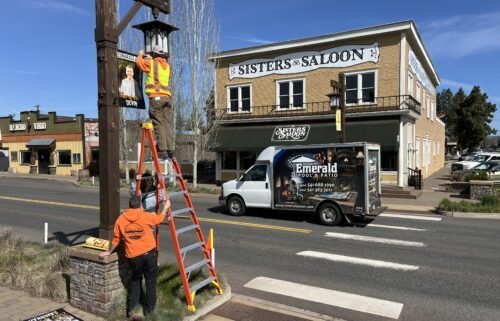
Sisters nonprofit hangs dozens of banners across downtown to honor the graduating HS Class of ’24
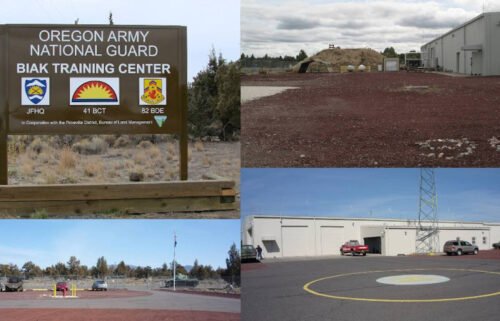
Oregon National Guard facility in Powell Butte to host nighttime Army helicopter training for next several days

Nix closes career with 5 TD passes, No. 8 Oregon rolls over Liberty 45-6 in Fiesta Bowl

Cathy Marshall
KTVZ NewsChannel 21 is committed to providing a forum for civil and constructive conversation.
Please keep your comments respectful and relevant. You can review our Community Guidelines by clicking here
If you would like to share a story idea, please submit it here .
Parisians protest against Islamophobia amid Gaza war tensions
- Medium Text
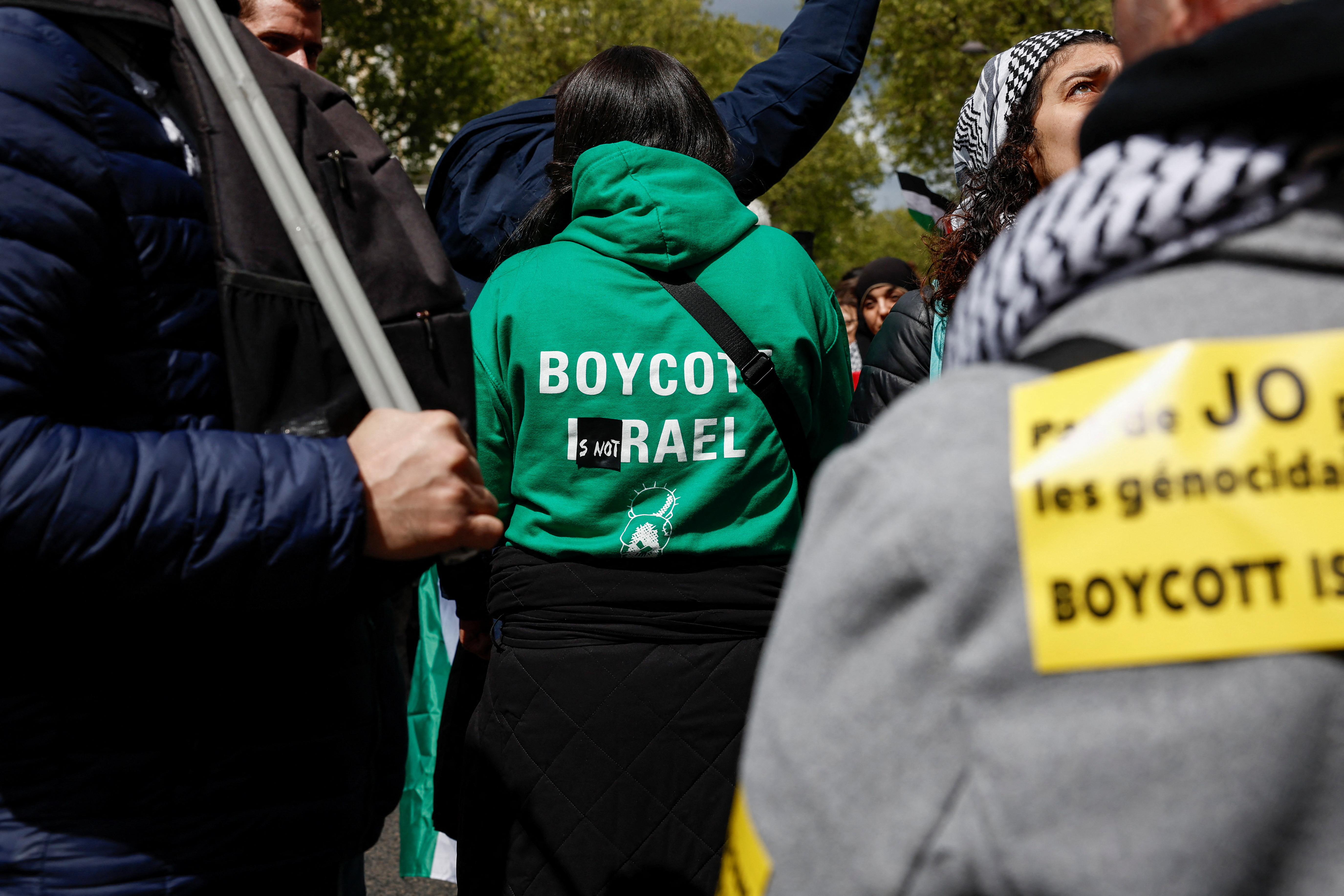
Sign up here.
Reporting by Manuel Ausloos, Louise Dalmasso Writing by Tassilo Hummel Editing by Frances Kerry
Our Standards: The Thomson Reuters Trust Principles. New Tab , opens new tab
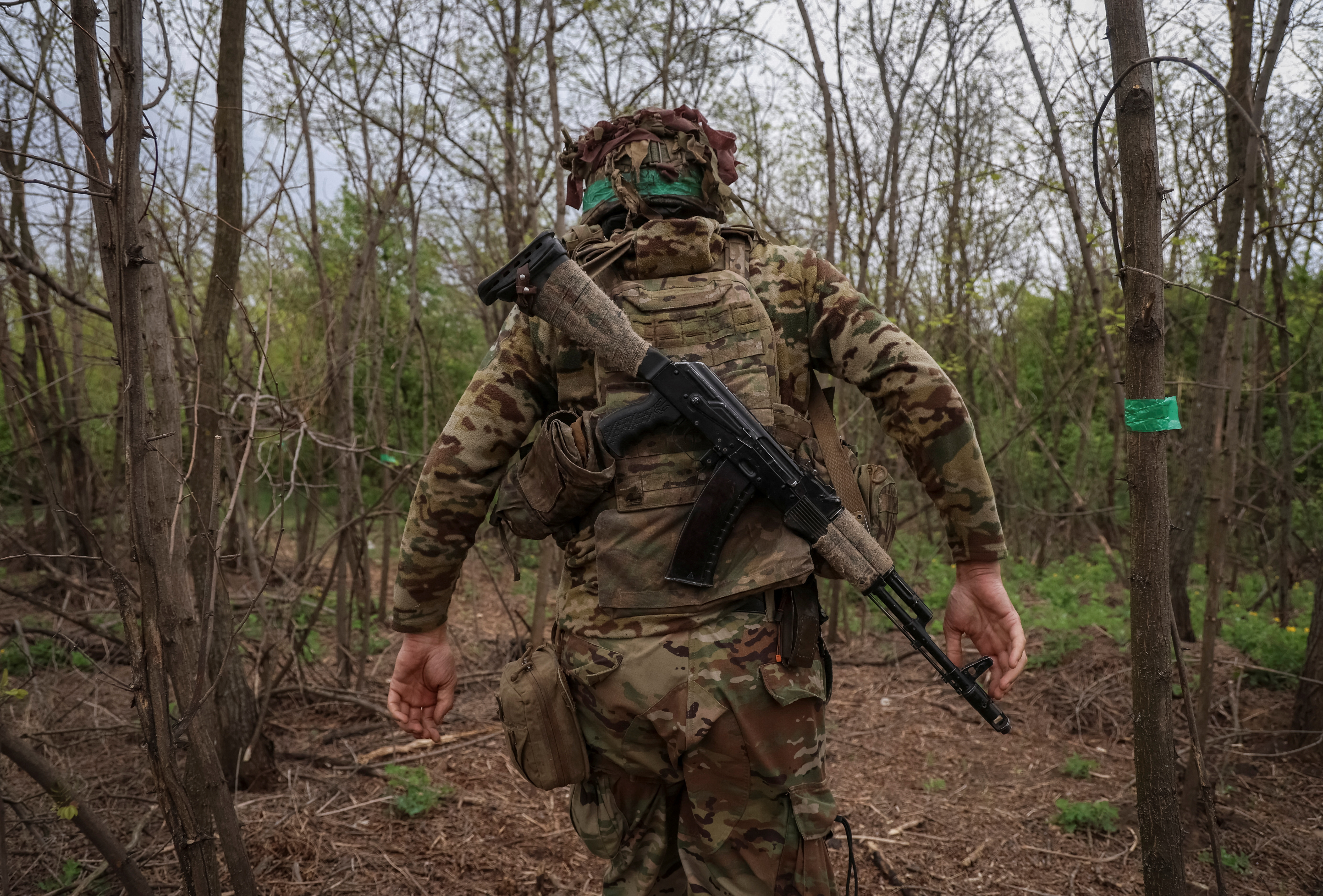
An aide to a member of the European Parliament for the far-right Alternative for Germany has been arrested in Germany on suspicion of "especially severe" espionage for China, the latest in a spate of such arrests across Europe.

World Chevron
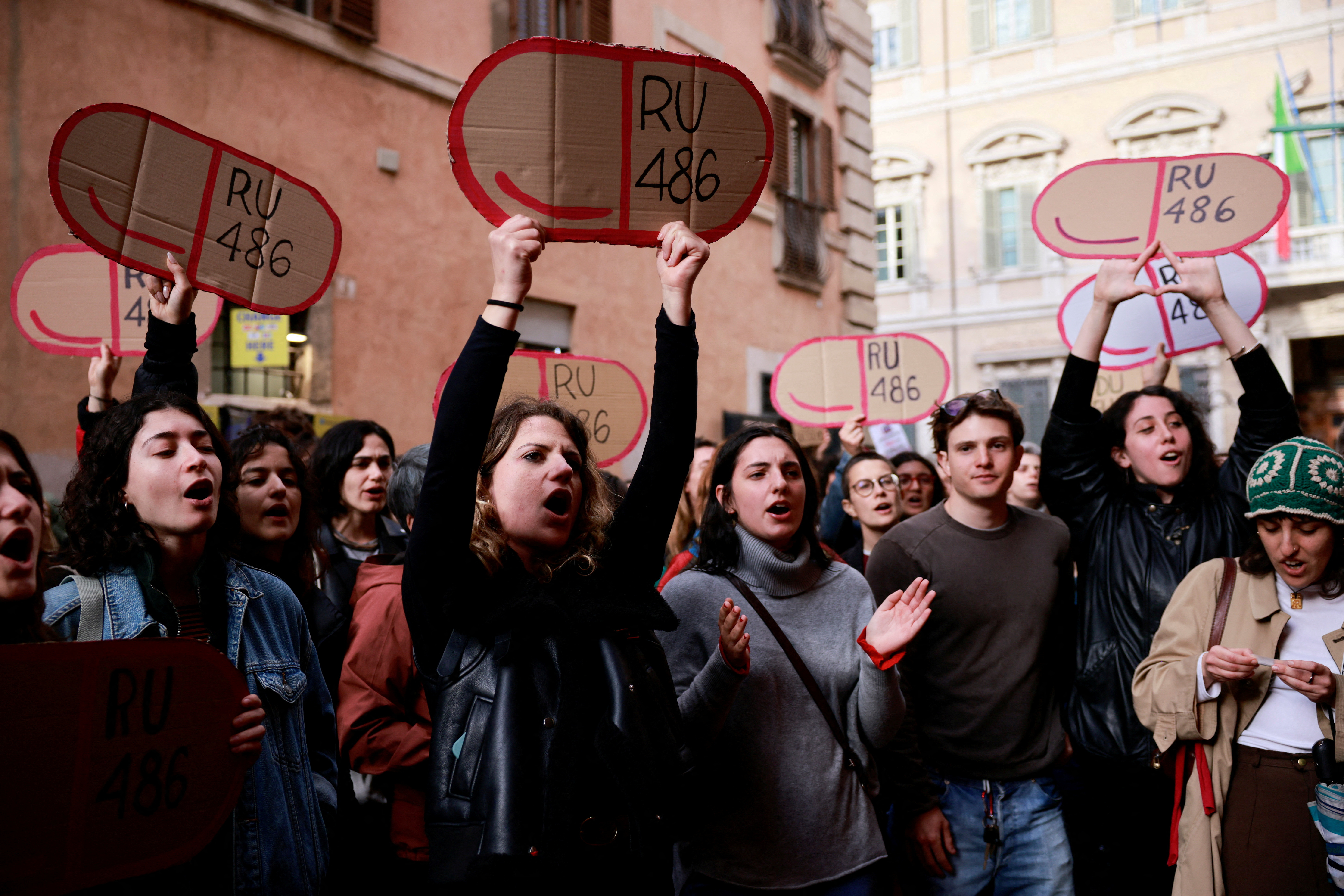
Italy passes contested plan to 'support motherhood' in abortion clinics
Italy's Senate gave final approval on Tuesday to a contested government plan to allow groups who "support motherhood" into abortion clinics to try to deter women terminating pregnancies.
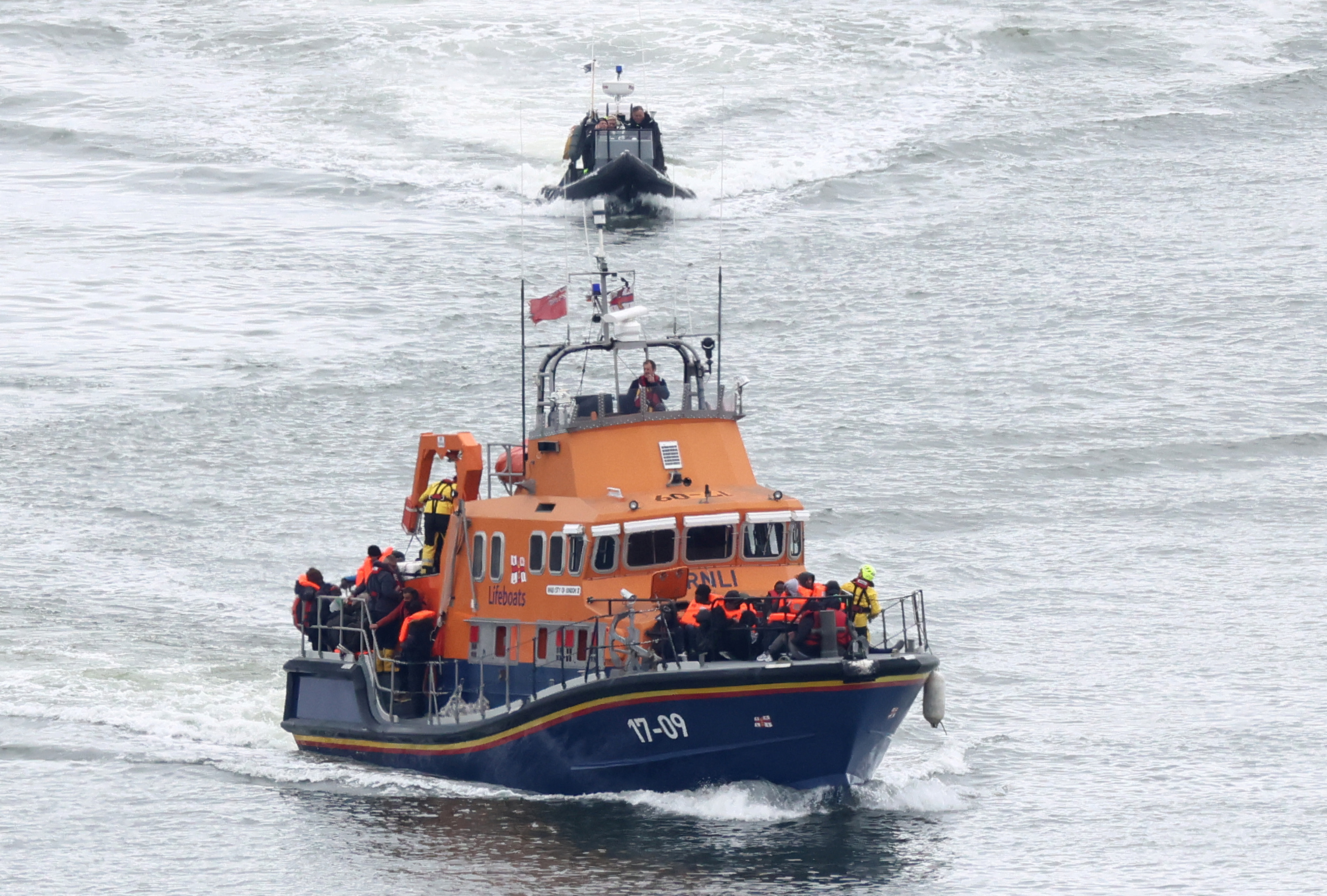
At least two people were killed including an 11-year-old girl, and six others injured after an Israeli airstrike hit a residential area in the southern Lebanese town of Hanin, Lebanon's official news agency NNA said on Tuesday.
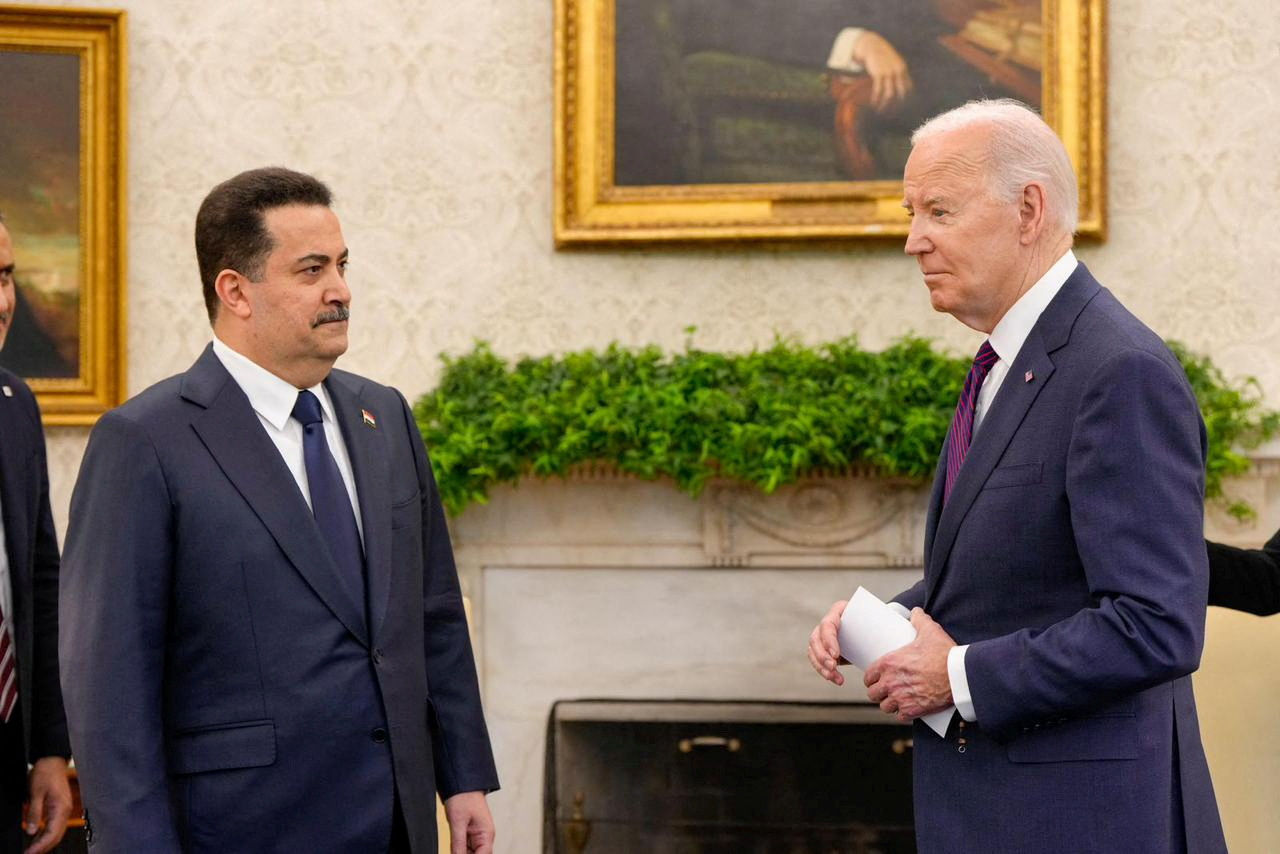

TravelRaval
Travel is Love
Is Paris Safe to Travel and Stay?
TravelRaval » Blog » Is Paris Safe to Travel and Stay?

P aris is a safe city located in France. It has a number of neighborhoods, districts, streets, and areas. Travelers can enjoy coming to this city for multiple reasons along with being secure. Being free from major political activities is one of the reasons why is Paris safe to travel to. Terrorism, robberies, and other crimes are also not highly alarming. This destination can be explored by travelers, students, families, kids, and others. They can stay, eat, live, and roam around the spectacular city while feeling protected. Even for the local people, residing here is a pleasant experience.
Is it Safe to Travel to Paris?

Some areas in the capital of France are secure for tourists. These are regulated by police officials and such bodies. But there are areas or situations that have witnessed robberies, political unrest, etc. Based on this understanding, how much is Paris safe to travel can be learned.
- Owing to the threat of terrorist attacks, sometimes, it is unsafe to travel here.
- There can be times when protests are going on, creating obstacles for tourists.
- Threats can be greater around Anzac Day in this city.
- Traveling here via train can invite the risk of muggings during the evening.
- Even when coming from the airport at this time, visitors can be robbed.
Why is Paris Safe for Solo Female Travellers?

Paris is a big city with multiple risk-free areas for women to visit. Solo female travelers can also feel a sense of security when they thoroughly plan a trip here. When roaming alone during the day, it is the safest for a woman. In other ways as well, this aspect is ensured.
- Eating alone in Paris does not invite danger.
- Even the quality of food is likely.
- The locals here are friendly and helpful.
- But to travel to Paris safely, lone women should prefer secure areas.
- Areas where crimes, protests, etc., are often reported should be avoided.
- For traveling alone, Uber taxis and the metro are the best options.
- Latin Quarter
- Champs Elysées
- The areas above are risk-free to live, roam, and venture.
Is it Safe to Travel to Paris Right Now during Coronavirus?

In the last few months, the coronavirus cases in Paris have not been alarming. Although some cases have been reported, not all of them are severe. Visitors from different countries or regions can, therefore, flock to this city. Prior to that, they should be aware of a few more things.
- Some new wave COVID-19 cases have been reported here.
- Campaigns for vaccination are ongoing.
- Since most locals are immune, visitors can come here with fewer worries.
- Residents are monitored by health authorities to keep a check on rising cases.
Is Paris Safe Right Now with Protests?
On the French roads of this city, protests, unrest, and strikes may often occur. For tourists, understanding the best course of action during these times is challenging. Considering whether or not is it safe to travel to Paris with the protests ongoing, tourists should remain alert about the possibilities.
- In March 2023, protests occurred in Bordeaux, influencing acts in Paris too.
- This ignited looting, fires, chaos, etc.
- In Paris, the recent pension protest resulted in strikes.
- Police made frequent arrests to control further protests.
- June can witness more protests relating to labor unions.
- Prior to planning a visit here, the current civil scenario should be inferred.
How Much is Paris Safe at Night for Tourists?

In this city in Europe, it is pleasing to make explorations at night. At the same time, one should be aware of the crimes occurring late during the evenings. Particularly when exploring the place alone, the possible occurrences should be learned about.
- Crimes in Paris can happen at night on public transport.
- Visiting clubs and bars with security cameras and professionals can be considered.
- Returning from bars located far from accommodation can be dangerous.
- Tourists may be drugged when they are not careful.
- Mostly, the city is secure. But the kind of activities preferred is more vital.
Is Uber in Paris Safe?
Given its affordability, Uber in Paris is often preferred by locals and visitors to roam the city. To travel for work, trips, or other reasons too, this mode of transport is ideal. It is not only low-cost but danger-free too.
Through these points, people can identify why is Uber safe in Paris:
- Moving safely on a budget is possible with Uber rides.
- To and from the airport, this is a secure travel option.
- Uber Paris is known for its well-behaved and qualified drivers.
- These easily available rides can be tracked through the Uber application.
- For day trips from Paris , this mode of traveling is both convenient and secure.
- To travel to this city risk-free from London, Versailles, or other cities, this mode is reliable.
Which are the Safe Areas to Stay in Paris, France?

For locals, travelers, students, and others in Paris, France, having access to secure accommodation is a boon. Particularly for travelers, enjoying their tour is more enjoyable when they stay in safe areas.
1. Le Marais
Identified as a district in Paris, Le Marais shelters various places to stay. This neighborhood houses multiple hotels. Those who are on a tour can explore 2 to 5-star hotels with appropriate safety arrangements. Villas, apartments, and houses are additionally found.
- As per the budget of people, shelters can be selected.
- From health to personal security, travelers can remain relaxed.
- These safe areas in Paris to stay have friendly locals too.
2. Montmartre
Dreamy views form the identity of Montmartre. Along with being beautiful, the area is guarded too. This neighborhood in Paris is flocked by tourists who experience fewer crimes here.
- The western and northern parts of Montmartre are secure.
- Shelters are available here along with fewer scams to observe.
- However, at night, it is best to not venture alone in this area.
Best known as a place to shop, drink, and explore, So-Pi in Paris is also where travelers can stay. Although this neighborhood is discovered by a few, for families, it is among the safest areas in Paris to live.
- This paradise for shoppers has busy streets.
- Hence, living and exploring the place alone is not a problem.
- People in the neighboring areas may not be so friendly.
- Nevertheless, with some vigilance, staying here becomes pleasant.
What are Some Safe Hotels in Paris, France?

With unique exteriors, Drawing House is a great hotel to stay in when traveling to the populous city of Paris. This hotel is the best for travelers with both personal security and health concerns. While it is equipped with security devices, Drawing House is also a place for non-smokers.
There are some other safe hotels too in this city that travelers can choose from:
- Hôtel Le Milie Rose is a 4-star place with good safety features available.
- La Planque Hotel is an affordable option with decent security arrangements.
- Particularly for families, Apartments Du Louvre – Le Marais is suggested.
- Hotel Paradis
- Maison Mère
- Hotel Caron de Beaumarchais
Is Latin Quarter in Paris Safe?
The Latin Quarter is a busy area in this city. It is populous and devoid of concerning issues for lone travelers. Minor concerns such as organized pickpocketing can, therefore, emerge. They happen particularly against tourists as they are simple to target when lacking awareness.
Aside from this, some factors help in revealing why is the Latin Quarter in Paris safe . These are shared below:
- When coming from Paris Charles de Gaulle Airport, booking taxis is ideal.
- This area comes with fewer environmental concerns.
- Some instances of mugging can occur when not careful.
- Scams like false petitions, card tricks, etc., require being alert.
Why is it Safe to Drink Paris Tap Water?

It is safe to drink tap water in Paris as it is checked for quality levels by reliable bodies. One of these includes Eau de Paris, a public water supply organization. In the past, however, quality issues may have persisted. Currently, it is regulated by dependable bodies in most parts of the city.
- This city’s tap water meets the standards of the World Health Organization.
- It is sourced from groundwater and rivers like Marne as well as the Seine.
- Paris tap water is safe as technologies are used to purify this vital resource.
How Much is Paris Safe to Travel Alone?
The French city is filled with areas for traveling alone. Interestingly, tourists enjoy walking through the beautiful streets of Paris. Their security is maintained, given the friendly neighborhoods, equipped streets, and guards available in many areas.
- When alone, walking here is risk-free mainly during the day.
- Lone travelers can securely traverse long distances through the metro.
- Some precautions should still be applied in certain areas.
Is Epinettes Paris Safe?
Epinettes is a district in Paris. It is a neighborhood that facilitates peace. Coming and staying here can be a decision devoid of major dangers. For students, particularly, staying in an area like this one can be both peaceful and secure.
- Aside from students, tourists can feel guarded when exploring this area.
- The quiet neighborhood has ideal family spots too.
- Epinettes Paris safety levels are adequate enough.
- During the night, bars can be found here with security measures in effect.
- But one is required to be cautious when visiting around the edge of Epinettes.
Are Hostels in Paris Safe?

As the capital city of France, multiple areas are protected in Paris. Here, hostels, inns, and such abodes can be relied on. Along with that, a clean environment facilitates good health too.
- Le Village Montmartre by Hiphophostels is a secure choice.
- Adveniat Paris is an affordable and guarded hostel.
- FIAP Jean Monnet is a good choice for small groups on tours.
How Safe is Paris Metro?
When one has to go around Paris, preferring the metro is suggested. This public mode of transport is flocked by friendly visitors and locals living here. Although minor theft concerns can be observed, Paris Metro is largely safe.
The below-mentioned points further tell why is Paris safe to travel and explore via the metro:
- Security professionals properly guard the metro.
- Even when traveling late, this transport option is the best.
- Assaults may occur but the chances are rare.
- Cameras are installed for surveillance, making travelers feel safer.
Is Disneyland Paris Safe?

Disneyland is among the best things to do in Paris, France. It is a protected place in terms of multiple aspects. Families, kids, teens, and solo travelers also can enjoy here without worrying about their personal safety.
- It is notable that Disneyland is a politically safe place.
- Strikes, protests, etc., do not frequently occur here.
- The French authorities properly guard the huge place of attraction.
- Even cleanliness standards are maintained here.
- Every visitor is thoroughly scanned to ensure a regulated crowd inside.
To Summarize
Paris is among the most secure destinations in France. The calm atmosphere of the place indicates why is Paris safe to travel to. It is devoid of protests, strikes, terror, etc. Minor crimes may occur. But by remaining careful, travelers can feel as secure as possible.
Frequently Asked Questions (FAQs)
Yes, Paris is one of the safest cities in France.
Montmartre is a secure area in this city for staying.
In this city, Le Marais is a neighborhood devoid of concerns like a lack of safety.
American tourists can enjoy the friendly atmosphere of this secure place.
Paris water is regulated by reliable organizations and is, therefore, safe to drink.
Fare-related taxi scams may occur but generally, this mode is secure.
This neighborhood is danger-free for living and traveling to.
Colombes is a safe area but may be prone to petty crimes.
Airbnb offers both safe and comfortable accommodations in the city.
Typically, Barbes is safe during the day. It can be risky at night.

Is Cartagena Colombia Safe to Travel for Solo Tourists

Best Things to Do Near San Francisco Airport (SFO)
For Flight Enquiry to "France"
- Call now to reveal great deals & discount

+1-877-445-3112
Begin typing your search term above and press enter to search. Press ESC to cancel.

IMAGES
VIDEO
COMMENTS
But the City of Lights and many other parts of France are right now convulsing with violence amid days of fiery protests. ... While it's still possible to travel to Paris and have a safe ...
The U.S. Embassy in Paris has issued a "security alert," warning that there are ongoing demonstrations in and around the Paris region and other major French cities "following the June 27 police shooting in the Parisian suburb of Nanterre.". "These demonstrations, along with spontaneous protests, are expected to continue and may turn ...
June 30, 2023. Violent protests have spread across France over the past week since the fatal police shooting of a 17-year-old in a Paris suburb. More than 800 people were arrested on Thursday ...
Ryanair boss Michael O'Leary has called for political intervention, complaining that the French strikes have forced his airline to cancel 230 flights, and that one million passengers have been affected. Travelers should consult their airlines for updates. Be aware, however, that protesters have also stormed Paris airports and set up blockades ...
The Paris metro might be affected on some days - always check before you travel. Is it safe to visit Paris at the moment? At the moment, the Foreign Office doesn't advise against travel to France. ... When will the protests and strikes in Paris and France end? That's the golden question. Thursday 23 March was marked as a day of cross-sector ...
The FCDO website currently states: "Since 27 June, riots have taken place across France. Many have turned violent. Shops, public buildings and parked cars have been targeted. There may be ...
Current guidance from the Foreign, Commonwealth and Development Office (FCDO) advises visitors to avoid demonstrations and remain vigilant. "On 16 March, large-scale demonstrations started in ...
Is it safe to travel to Paris right now? As March 23 was a designated day of walkouts and protests across the country, there is an expectation that the streets will be calmer in the coming days ...
Is it safe to visit Paris right now? Protest days have led to violent clashes with police in recent weeks with thousands of people taking to the streets of Paris. But there aren't currently any ...
The unions claimed a higher number. The first such day of mobilization took place on January 19. These street demonstrations are announced in advance and follow specific routes, also announced in advance, usually including Bastille, Nation, place de la République and/or place d'Italie. Mostly these protests are peaceful.
Police officers on patrol in Paris. AP. Travellers have not been told not to travel to France during strikes and protests. The UK Foreign Office has warned of disruption and delays, but does not imply that travel plans should be cancelled. The protests are against the government and not aimed at travellers, meaning tourists in Paris should ...
Is it safe to travel to France right now? Country bans fireworks ahead of Bastille Day Police officers patrol in front of the Arc de Triomphe on the Champs Elysees in Paris, 1 July 2023.
By Barry Neild and Xiaofei Xu, CNN. (CNN) — With violent and fiery protests gripping Paris and other cities across France in the wake of the fatal police shooting of a teenage boy, many of the ...
A wave of violent protests and police mobilizations radiating from Paris have left many travelers wondering if it's still safe to visit the popular City of Light. On June 29, the U.S. Embassy in Paris, France issued a security alert in response to potentially dangerous protests following the fatal police shooting of 17-year-old Nahel Merzouk ...
The number one question people have when it comes to planning jaunts to the French capital is whether it's safe to visit during protests. Right now, there's no official warning against travel to France or Paris listed by the UK Foreign Office (FCDO). That's generally seen as the gold standard of travel warnings.
Paris, France is generally safe for visitors, including solo travelers and women. However, visitors should be aware that while violent crime is relatively low in Paris, petty theft and pickpocketing are high. The French capital is a major city, and it comes with the same dangers as any other European city.
The Economist-sponsored "Safe Cities" report for 2021 ranked Paris as the 23rd-safest major city in the world out of 60- making it almost exactly middling. And while the city has admittedly taken a significant knockdown in global city safety ratings due to recent terrorist attacks and other factors, violent crime is still generally uncommon in the capital.
In this article, I will provide you with information and guidance on whether it is safe to travel to Paris right now with the protests. Understanding the Situation in Paris. The recent protests in Paris were sparked by the police killing of a young man of North African descent. While the protests have ended, the underlying causes still remain.
(CNN) — With violent and fiery protests gripping Paris and other cities across France in the wake of the fatal police shooting of a teenage boy, many of the millions planning a visit there this ...
There's probably 4 protests a week in Paris, and that's not hyperbole. Don't worry. You can even watch or take part. Just don't start burning, breaking or stealing at the end of the march and you should be fine. 19.
A crowd of around 2,000 people protested in Paris against racism, Islamophobia and violence against children on Sunday after a court allowed their demonstration to go ahead.
Is Paris Safe Right Now with Protests? On the French roads of this city, protests, unrest, and strikes may often occur. For tourists, understanding the best course of action during these times is challenging. Considering whether or not is it safe to travel to Paris with the protests ongoing, tourists should remain alert about the possibilities.
In her response, Grinage did not offer a safe housing accommodation in New York City. "Please let me know if we can help book a flight for you to return to Georgia, which I see as the state listed in your permanent address, or help arrange travel to another safe location," Grinage's response reads. "It felt surreal that the Dean of the ...
A crowd of around 2,000 people protested in Paris against racism, Islamophobia and violence against children Sunday after a court allowed their demonstration to go ahead. Bans on protests have ...